
THE CHALLENGES FACING ELECTRICAL AND COMMUNICATIONS SUBCONTRACTORS
























As one of the most regulated industries in the country, it’s arguable that construction industry subcontractors face more than their fair share of challenges. In this edition, we’re taking a deep dive into some of the sector’s biggest issues, and in some instances how it’s these same regulations that are failing to protect us.
High on the list is security of payments – or, making sure that tradies get paid for the work that they do! to quote from one article in this issue, “the current Security of Payment (SOP) laws are inconsistent and don’t adequately protect the rights of subcontractors, who are already hampered by a culture of imposing unfair contract terms.” It’s past time that this was addressed, so, in this issue, we look at where we are now and what we are
calling on the government to do to ensure that our crucial industry is not disadvantaged by an unfair system.
We also cover recent changes to workplace law – such the criminalisation of industrial manslaughter, new silica dust regulations, new definitions of ‘casual,’ ‘employer’ and ‘employee,’ wage increases, and same work, same pay, and that’s only the beginning!
the point is that we live in rapidly changing times and keeping up with the changes can be challenging, both professionally and personally. But you’re not in this alone! NECA is constantly advocating with government and policy makers on your behalf, as well as providing information, tools, services, networking opportunities and mental health support to help you and your

business meet the challenges and continue to thrive. So, take advantage of your membership! there’s a lot here that subbies need to be across, and a lot of pressure on those within our industry, so if could use advice from any of our specialist teams or are looking for some support reach out to your local NECA branch.
As always, we’d like to thank our sponsors for their generous support, and all our members, large and small, for your continued support of NECA and our industry. If you have something to share about your corner of the country, please let us know. We’d love to hear from you.
Share your feedback via email necanews@neca.asn.au
Share your ideas for content via email necanews@neca.asn.au
We’re looking to showcase NECA member stories in each issue. Reach out to your NECA Branch or email necanews@neca.asn.au
If you’d like to join more than 30,000 of your industry peers and receive a digital version of NECA News, sign up at www.neca.asn.au/necanews



ABB’s PowerValue 11T G2 and Power Value 11RT G2 are double conversion online UPS models that guarantee up to 10kW per single UPS of clean, reliable power for your critical singlephase applications.
As well as maintaining power to your server room, lab equipment, industrial automation equipment and security, CCTV or AV, the PowerValue range also conditions incoming power to eliminate spikes, swells, sags, noise and harmonics.
Featuring voltage and frequency independent (VFI) topology, the tower-only PowerValue 11T G2 saves costs by minimizing energy losses with its double conversion efficiency of up to 95 percent (up to 98% in ECO mode). Two or three units can be connected in parallel to boost power delivery to a maximum of 30 kW or to provide redundancy.
The PowerValue11RT G2 can be used as a standalone UPS device or installed into a standard 19” rack configuration, with connectivity options available for each. Three units of the 6 or 10kW models can be configured in parallel to provide redundancy or to increase the system’s total capacity up to 30 kW. All units can be fitted with up to nine battery modules to extend runtime.
IN RECEN t YEARS, t HE ISSUE OF SECURI t Y OF PAYMEN t S HAS BECOME A SIGNIFICAN t CONCERN FOR ELEC t RICAL SUBCON t RAC tORS ACROSS AUS t RALIA. AS VI tAL CON t RIBU tORS
tO t HE CONS t RUC t ION INDUS t RY, OUR SKILLED t RADESPEOPLE ARE INCREASINGLY FACING FINANCIAL INS tABILI t Y DUE tO DELAYED OR WI t HHELD PAYMEN t S. t HIS CRISIS NOt ONLY t HREAt ENS t HE LIVELIHOODS OF INDIVIDUAL SUBCON t RAC tORS, BU t ALSO POSES A RISK
tO t HE BROADER ECONOMY BY DES tABILISING ONE OF I t S KEY SEC tORS. ELEC t RICAL SUBCON t RAC tORS ARE CALLING FOR GREAt ER GOVERNMEN t EFFOR t S AND LEGISLAt ION tO ENSURE t IMELY PAYMEN t S AND FINANCIAL SECURI t Y IN t HEIR LINE OF WORK.

the construction industry in Australia is notorious for its complex payment structures and contracts, which often lead to disputes and delayed payments. Electrical subcontractors, who typically operate as small or medium sized businesses, are particularly vulnerable. Unlike larger companies with more robust cash flows and legal resources, these subcontractors rely heavily on prompt payments to maintain their operations and to pay their staff and suppliers. Delays can lead to cash flow problems, making it difficult to pay employees, purchase materials, and complete projects on time. this financial strain not only affects the subcontractors but also cascades through the supply chain, impacting other trades and suppliers.
NECA has made sure that the Government understands that the issue of security of payments is exacerbated by the industry’s hierarchical structure. Main contractors, who hold the bulk of the contractual power, often delay payments to subcontractors as a means of managing their own cash flow. this practice, while beneficial to larger firms, places undue pressure on smaller subcontractors. the ripple effects include halted projects, job losses, and in severe cases, business closures. Such instability undermines the entire construction ecosystem and calls for immediate intervention. Fair’s fair, our members should be paid for the work they do and NECA is there to support them

and to tell the government that they need to intervene and act now.
Government support is crucial in addressing these challenges. One proposed solution is the implementation of stronger legislative measures to protect subcontractors’ rights. Current laws, such as the Security of Payment Acts in various states and territories, appear to provide some protection but, in practice, are insufficient. Enhanced legislation could include stricter penalties for late payments, mandatory cascading trust accounts to hold progress payments, and simplified dispute resolution processes and
adjudication. these measures would ensure that subcontractors receive their due payments promptly and without unnecessary legal battles.
the current state of security of payments in Australia poses a serious threat to electrical subcontractors. the electrical subcontracting sector is a cornerstone of Australia’s construction industry, providing essential services that power homes, businesses, and infrastructure. Ensuring these

businesses’ financial security is not only a matter of fairness, but also of economic stability. NECA is fighting for our industry, urging greater government focus on stronger legislation and proactive regulation, to safeguard the interests of these crucial tradespeople. By adopting NECA’s recommendations the government can ensure a fairer, more stable construction industry, that benefits all stakeholders.
Kent Johns NECA Head of Government Relations and Policy
the reforms aim to better balance commercial interests and consumer rights, encouraging businesses to review and ensure that their existing standard form contracts comply with the Australian Consumer Law.
Under the UCt regime, a term of a contract is void if:
½ the contract is a ‘consumer contract’ or a ‘small business contract’;
½ the contract is a ‘standard form’ contract;
½ the term / clause of the contract is ‘unfair’.
Unless contracted directly by the owner for a residential build, generally, within the construction industry, the UCt regime applies if the relevant contract is a ‘small business contract.’
Under the new UCt regime, a contract is considered a ‘small business contract’ if one of the contracting parties:
½ employs fewer than 100 persons; or
½ has a turnover of less than $10,000,000.
As to what constitutes a ‘standard form’ contract, the relevant factors to consider include:
½ whether one of the parties has all or most of the bargaining power relating to the transaction;
½ whether the contract was prepared by one party before any discussion relating to the transaction occurred between the parties;
½ whether one of the parties has made another contract, in the same or substantially similar terms, prepared by that party, and, if so, how many such contracts that party has made;
½ whether another party was, in effect, required either to accept or reject the terms of the contract in the form in which they were presented;
½ whether another party was given an effective opportunity to negotiate the terms of the contract;
½ whether the terms of the contract take into account the specific characteristics of another party, or the particular transaction.
A contract may be determined to be a standard form contract, despite the existence of one or more of the following:
a) an opportunity for a party to negotiate changes, to terms of the contract, that are minor or insubstantial in effect;
b) an opportunity for a party to select a term from a range of options determined by another party;
c) an opportunity for a party to another contract or proposed contract to negotiate terms of the other contract or proposed contract.
A term of a standard form contract is unfair if:
½ it would cause a significant imbalance in the parties’ rights and obligations arising under the contract;
½ it is not reasonably necessary in order to protect the legitimate interests of the party who would be advantaged by the term;
½ it would cause detriment (whether financial or otherwise) to a party if it were to be applied or relied on.
A party asserting that a term is unfair must substantiate each of the above elements.
In determining whether a term of a contract is unfair, a court may take into account such matters as it thinks relevant, but must take into account the following:
½ the extent to which the term is transparent;
½ the contract as a whole.
A term is transparent if the term is:
½ expressed in reasonably plain language;
½ legible;
½ presented clearly;
½ readily available to any party affected by the term.
In Karpik v Carnival plc [2023] HCA 39, a judgment relating to the class action with respect to passengers of the Ruby Princess contracting Covid-19, the High Court recently examined the concept of transparency and its role in determining the fairness of contract terms. the High Court held that:
“the greater the imbalance or detriment inherent in the term, the greater the need for the term to be expressed and presented clearly. Conversely, where a term has been readily available and is clearly presented and plainly expressed, the imbalance and detriment it creates may need to be of greater magnitude.”
Examples under the Australian Consumer Law
the legislation provides the following, non-exhaustive, list of examples of unfair terms:
½ a term that permits, or has the effect of permitting, one party (but not another party) to avoid or limit performance of the contract;
½ a term that permits, or has the effect of permitting, one party (but not another party) to terminate the contract;
½ a term that penalises, or has the effect of penalising, one party (but not another party) for a breach or termination of the contract;
½ a term that permits, or has the effect of permitting, one party (but not another party) to vary the terms of the contract;
½ a term that permits, or has the effect of permitting, one party (but not another party) to renew or not renew the contract;

½ a term that permits, or has the effect of permitting, one party to vary the upfront price payable under the contract without the right of another party to terminate the contract;
½ a term that permits, or has the effect of permitting, one party unilaterally to vary the characteristics of the goods or services to be supplied, or the interest in land to be sold or granted, under the contract;
½ a term that permits, or has the effect of permitting, one party unilaterally to determine whether the contract has been breached or to interpret its meaning;
½ a term that limits, or has the effect of limiting, one party’s vicarious liability for its agents;
½ a term that permits, or has the effect of permitting, one party to assign the contract to the detriment of another party without that other party’s consent;
½ a term that limits, or has the effect of limiting, one party’s right to sue another party;
½ a term that limits, or has the effect of limiting, the evidence one party can adduce in proceedings relating to the contract;
½ a term that imposes, or has the effect of imposing, the evidential burden on one party in proceedings relating to the contract.
From a construction perspective, possible unfair terms include:
½ indemnities that are too broad and one-sided;
½ limitations on liability that go beyond what is reasonable;
½ termination provisions that are too one-sided;
½ non-disparagement clauses in building contracts;
½ overly harsh liquidated damages terms;
½ unreasonably short periods to lodge notices;
½ warranty provisions that are too broad.
Although there is limited case law on which terms will be deemed unfair in the construction context, the following examples provide some preliminary guidance as to what terms will be considered unfair.
ACCC v JJ Richards & Sons Pty Ltd [2017] FCA 1224
In this case a waste collection business included the following clause in their contracts:
“to the maximum extent permitted by law, the customer shall be responsible for and indemnify JJR from and in respect of all liabilities, claims, damages, actions, costs and expenses which may be incurred by JJR on a full indemnity basis as a result of or arising out of or otherwise in connection with this agreement, including any breach by the customer of any of the warranties, covenants and conditions herein.”
the Federal Court deemed this term unfair and void, citing that it caused an imbalance in the parties’ rights by unilaterally conferring an indemnity in favour of JJR. the broad nature of the clause was not reasonably necessary to protect JJR’s legitimate interests.
Australian Securities and Investment Commission v PayPal Australia Pty Ltd [2024] FCA 762
the term in question permitted PayPal to retain fees that it had erroneously deducted from small business customer accounts, unless the business notified PayPal in writing within 60 days of

Charles Moran Lynch Meyer Lawyers Partner
the erroneous charge appearing on the business’ account statement.
the Federal Court held that this term was unfair. the Federal Court’s decision stated the following:
½ PayPal was much better placed than small businesses to be able to identify whether there has been overcharges;
½ the term limited the rights of small businesses to claim a correction to or compensation for amounts that PayPal wrongly charged;
½ there was no corresponding right for small businesses to retain the benefit from undercharging.
In addition to declaring a term void (and potentially an entire contract if it cannot survive the severing of the term) and imposing monetary penalties, courts can now also:
½ vary a contract;
½ make orders relating to other existing contracts (whether or not before the court) that contain the same unfair term as a contract before the court;
½ prevent terms being included in future contracts;
½ make orders to prevent or reduce loss or damage that may be caused by the term.
the maximum penalty per contravention for companies is now the greater of:
½ $50 million;
½ three times the value of the benefit;
½ 30% of adjusted turnover for the breach period.
For individuals, the maximum penalty is $2.5 million.
½ terms need to be balancedconsider both points of view;
½ include counter-balancing terms;
½ avoid overly broad terms;
½ make the terms transparent.
t HE CURREN t SECURI t Y OF PAYMEN t (SOP) LAWS ARE INCONSIS t EN t AND DON’ t
ADEQUAt ELY PROt EC t t HE RIGH t S OF SUBCON t RAC tORS, WHO ARE ALREADY HAMPERED BY A CULt URE OF IMPOSING UNFAIR CON t RAC t t ERMS.

too often, subcontractors receive payment for their work late, or in worst-case scenarios, not at all. It’s unacceptable that a subbie should be paid later than everyone else. In the case of insolvencies, subcontractors can be the last to be paid, if they are paid at all.
the lack of consistent and fair payment protection laws is hurting the building and construction sector, an industry that employs approximately 1.3 million Australians. Something has to change.
With the current financial stress on Australians, there’s an even greater importance on getting tradies paid. Business pressures extend beyond material impacts and can impact the wellbeing of business owners, employees and their families, leading to some tradespeople leaving the industry altogether.
Lloyd Construction is a small, family-owned and operated business specialising in commercial carpentry fit-outs.
“Since October 2023, we have been caught up in the collapse of three builders in Canberra and have subsequently lost $440,000,” Amie from Lloyds Constructions says.
“Unfortunately, we are not alone and there are hundreds of subcontractors across just Canberra alone who are owed millions of dollars. A local joiner is owed more than $800,000. A local electrical company has lost over $350,000. Suppliers across the region are owed millions. From administrators’ initial findings, the return to subcontractors and unsecured suppliers will be zero dollars.”
this is because, as it currently stands, the builder’s debt becomes the subcontractor’s debt.
“As well as losing payment for works already complete, subcontractors also lose their pipeline of work, resulting in a complete stop to their business. At the back end of one collapse, it has taken over ten weeks for some of the jobs to start moving again, under a new builder,” Amie explains.
Both state and federal governments have ambitious housing and renewable targets and desperately need the workforce to help achieve these goals.
Stronger security of payment (SOP) laws are needed to regain business confidence in the sector, support small and medium-sized businesses, create new jobs and attract skilled workers.
Nobody in the industry is immune to these risks and more must be done to support the real people affected.
“It’s time someone in this government stood up – took responsibility – and did something about properly protecting subcontractors,” independent ACt senator David Pocock says.
“the government is making bold announcements about delivering 1.2 million homes over the next five years. Well, who’s going to build them? Who’s going to build them if we aren’t actually looking after tradies in this country?”
In 2017, John Murray AM was commissioned by the Federal Government to undertake a review of existing SOP laws, delivering a report in 2018 titled Review of Security of Payment Laws: Building trust and Harmony.
John, who conducted the review alongside the Australian Government’s Department of Jobs and Small Business, is the former national executive director of Master Builders Australia and a specialist in building contract disputation and security of payment legislation. He became a Member of the Order of Australia in 2014 for his service to the construction industry.
Without a national SOP law, the various states and territories have progressively enacted their own legislation. All of the jurisdictions, other than WA
and Nt, have based their legislation on the Building and Construction Industry Security of Payment Act 1999 (NSW) and such legislative regimes have come to be referred to as “the East Coast model”. the legislative regimes that operate in WA and the Nt are based on a different model, referred to as “the West Coast model”. there are significant differences, not only between the two models, but particularly within those jurisdictions that have adopted the East Coast model.
the report notes several issues that come with having two different models of SOP laws:
½ with the exception of Queensland, none of the existing state and territory legislations provide any effective ‘security’ of payment where a party higher up the contractual chain becomes insolvent;
½ the legislative regimes are unduly complex and this has discouraged their usage and caused confusion;
½ there are questions around: the process of appointing adjudicators; the adequacy of qualifications, training and grading of adjudicators, and; the variable quality of adjudication decisions;
½ there is an imbalance of bargaining power within the contractual chain and the practice of passing on contractual risks has resulted in the imposition of unfair contract terms that prevent payment to the party that has carried out construction work;
½ there are suggestions that acts of intimidation and retributive conduct by head contractors discourage subcontractors from pursuing their entitlements;
½ late payment continues to be a major issue for the construction industry.
“there is no uniformity of the various legislative regimes that currently operate across the various jurisdictions,” John says.
“In some jurisdictions (e.g. Victoria) there is a carve-out preventing subcontractors from being able to claim payments for variations, whilst in other jurisdictions the process for resolving disputed payment claims can take months to resolve rather than a few weeks (e.g. Queensland), thereby making a mockery of the legislation’s prime objective of promoting the cashflow of the party that has carried out construction work.”

After identifying the issues with the current SOP law situation, the Murray report outlined a range of recommendations to resolve the issues currently affecting subcontractors across the country. these recommendations aim to improve the level of construction payment protections across the country, while ensuring subcontractors obtain prompt payment for the work they have completed.
Former NECA National director of government relations, Irma Beganovic, says that a piecemeal adoption of the Murray recommendations by some states and territories has led to greater inconsistencies between jurisdictional laws.
“NECA, together with other industry bodies, is actively advocating for three key areas of reform. More specifically, the group are calling for the Federal Government to introduce a single framework and remove the confusion between jurisdictional laws,” she says.
the three key areas of reform are:
½ the implementation of recommendations as outlined in the Murray report, including provision for cascading statutory trusts in favour of subcontractors and sub-subcontractors;
½ greater protections against unfair contracting through stronger prohibitions for unfair contract terms, which are strongly linked to SOP issues;

½ ensuring procurement practices, policies and procedures support fair contracting down the construction supply contractual chain.
Irma says that everyone deserves to get paid for the work they do, including approximately 85% of workers on construction sites who are employed through subcontracting arrangements, many of whom are electricians.
Amie from Lloyds Constructions says that they’d like to see the Commonwealth enact legislation for SOP. “It makes no sense that the construction industry is working to eight substantially different pieces of legislation regarding SOP.
“With the national legislation, we’d like to see retention money withheld from subcontractors put into a trust account. We’d like to see a review of the Australian Securities and Investments Commission (ASIC). ASIC has never prosecuted an insolvent construction company director. We are seeing directors collapsing construction companies owing millions without consequence and we would like to see these directors investigated and charged. ASIC need to step up and enforce consequences.”
to address the challenges facing the sector, the federal government, through the Department of Employment and Workplace Relations, established the National Construction Industry Forum (NCIF). the NCIF is a tripartite forum and aims to bring together businesses, unions and governments to jointly discuss the challenges facing the industry.
David Pocock played a crucial role in establishing the NCIF. the Forum was a commitment Minister tony Burke gave him coming out of the Jobs and Skills Summit. Mr Pocock’s vote was critical for the passage of the Secure Jobs, Better Pay bill as he tries to push for statutory trusts to guard payments for small players in construction, against demands from larger builders who oppose the same push, saying it would limit their cashflow.
the NCIF is chaired by Minister for Employment and Workplace Development, tony Burke, and includes
the CFMEU, Australian Workers’ Union, Australian Manufacturing Workers’ Union, Electrical trades Union (EtU), NECA, Housing Industry Association, Property Council of Australia and Australian Owned Contractors, among others.
the goal of the NCIF is to work constructively and cooperatively to tackle a range of issues facing the building and construction sector.
Irma says: “I’m honoured NECA have the opportunity to represent employers and the interests of the industry and bring to the government’s attention the key priorities facing electrical businesses, including SOP.”
EtU national secretary Michael Wright adds: “EtU members know that a strong SOP regime will keep workers employed and protect their entitlements.
“the EtU strongly supports the strengthening of the current legislation that governs SOP. No worker should face a situation where they are not paid for the important work they are doing because a contractor delays or withholds the payments they are required to pay. Our members’ wages shouldn’t be used as the developer’s piggy bank.”
As outlined in the February 2024 communique of the NCIF, two subcommittees of the forum have been established, the Gender Equity Subcommittee, and the Financial Viability Subcommittee. In the work of the Financial Viability Subcommittee, five priority areas have been identified to improve the financial viability of the sector.

SOP issue: “It has now been six years since my report was released that recommended that steps be taken to ensure uniformity of legislation and the introduction of cascading statutory trusts.
these include SOP for everyone in the contractual chain, including consideration of nationally consistent laws, profitability and fairness, cash neutrality, securities and insurance, and future workforces and skillsets.
John Murray says it’s high time for the government to address the
“It’s also almost three years since the ALP promised that, if elected, it would ‘immediately implement’ all my recommendations. Some two years after being elected, the Federal Government has yet to follow through on that promise. But for the lack of political will, many fine firms continue to suffer undue financial and mental hardship.”
Amie concludes that it’s frustrating to see that the government

identified these issues back in a 2003 Royal Commission, but no changes have been made yet.
“the number of subcontractor businesses, families and tradespeople that have been affected by the lack of payment in the construction industry since 2003 would be millions,” she says.
“the government has all the information in front of them, they need to put their information into action. We are calling on the federal government to enact security of payment legislation as soon as possible. Subcontractors just want to be paid.”

t HE FAIR WORK COMMISSION HAS INCREASED BOt H t HE MINIMUM AND AWARD WAGES BY 3.75 PER CEN t, EFFEC t IVE FROM 1 JULY 2024. t HIS DECISION RAISES t HE NAt IONAL MINIMUM WAGE tO $24.10 PER HOUR, OR $913.91 PER WEEK, BASED ON A 38-HOUR WEEK. WHILE t HIS INCREASE AIMS tO ENSURE FAIR COMPENSAt ION FOR WORKERS, I t MAY ALSO PRESEN t SOME CHALLENGES FOR EMPLOYERS IN MANAGING LABOUR COS t S.

the impact of minimum wage increases on employment levels has been a subject of significant debate. Studies often show that raising the minimum wage can have adverse effects on employment rates. this is because higher wage costs for employers may lead to reduced hiring, or even automation, to offset the increase in labour expenses. Data from labour escalation forecasts typically show that these increases can reduce the number of available jobs, as businesses adjust to higher wage costs.
Balancing wage increases with non-monetary benefits is crucial for attracting and retaining talent in the electrotechnology sector, for example:

½ ensuring a safe work environment, through robust workplace policies and OHS safety measures, to reduce absenteeism due to injuries;
½ clear career pathways and regular performance reviews with upskilling opportunities to help retain staff;
½ offering educational opportunities and diverse roles within the sector to motivate employees to stay and grow with the company;
½ developing pathways for women into the sector and providing meaningful workplace support, such as more inclusive environments, adequate amenities, flexible work arrangements and promoting female role models.
Lina Altarifi Executive General Manager, Business Solutions Hub

The Fair Work Act 2009 (Cth) still notionally has, as part of its object, to provide laws that are “flexible for businesses, promote productivity and economic growth.”1 the changes introduced by the Closing the Loopholes Act 2023 (Cth) fail to achieve these objectives. Instead, they impose additional legislative burdens, that further restrict employeeemployer relations and disproportionately impact small businesses lacking large HR departments. the new regulations limit the flexibility of employment
arrangements, creating a more rigid and controlled labour market. Furthermore, the legislation significantly expands union power, granting greater influence in workplace matters, such as rights of entry and the ‘same job, same pay’ reform. this increased union authority, combined with the heavier regulatory load, complicates compliance and operational efficiency, placing additional strain on businesses, particularly smaller enterprises, such as many electrical contractors, as they navigate the complex legal landscape.

the changes introduced by the Fair Work Legislation Amendment (Closing Loopholes) Act 2023 (Cth) further restrict employee-employer relations, and come at a time when, according to the Productivity Commission, Australia’s labour productivity fell by 3.7% last financial year2. One example is the redefined terms of casual employment, which emphasise ‘real substance,’ ‘practical reality,’ and ‘true nature’ over contractual agreements, creating an ambiguous legal framework. this shift is likely to result in increased uncertainty and disputes, undermining employers’ ability to establish clear and consistent employment terms. Furthermore, the narrower grounds for refusing employeeinitiated requests for conversion to permanent employment limit employers’ flexibility in workforce planning. this restriction hampers businesses’ ability to adapt to fluctuating market conditions and operational needs, making it more challenging to maintain an agile and responsive workforce. these changes, along with the additional red tape in the Act, mean NECA members will have to spend more time focused on administration and less time on the core business of being electrical contractors.
the new amendments impose an additional burden of red tape, particularly on small businesses. According to the latest Australian Chamber of Commerce and Industry Survey, 49% of small businesses reported that existing red tape was significantly impacting their operations3 the introduction of new penalties and offences related to casual employment, along with the ‘right to disconnect,’ adds layers of bureaucratic hurdles and potential legal consequences. Small businesses, already operating with limited resources, face heightened financial and administrative stress as they strive to comply with these complex regulations. Every mandated regulation adds to the workload that
businesses must devote administrative time to in order to comply. Businesses and employees must be free to come to arrangements that work for both parties. Employers offer pay and conditions to attract and retain talent in a tight labour market, and employees seek out the best conditions. this is not a situation where further red tape is required.
Record Keeping & Repor ting <Touch Screen
Closing the loopholes also marks a significant expansion of union power. By granting unions greater influence in areas such as rights of entry, and enterprise bargaining negotiations, the legislation excessively shifts the balance of power in favour of unions. this expanded authority will further disrupt workplace harmony and productivity, as unions can now exert more control over employment terms and conditions. Additionally, the enhanced rights and protections for workplace delegates, including reasonable paid time for training and increased access to workplace facilities,

further empower unions. these changes not only complicate business operations, but also increase the potential for union interference, making it more difficult for employers to manage their workforce effectively and maintain operational efficiency. this is yet another example of how the legislation will take resources from the productive parts of the economy, namely businesses, and allocate them to non-productive union organisers.
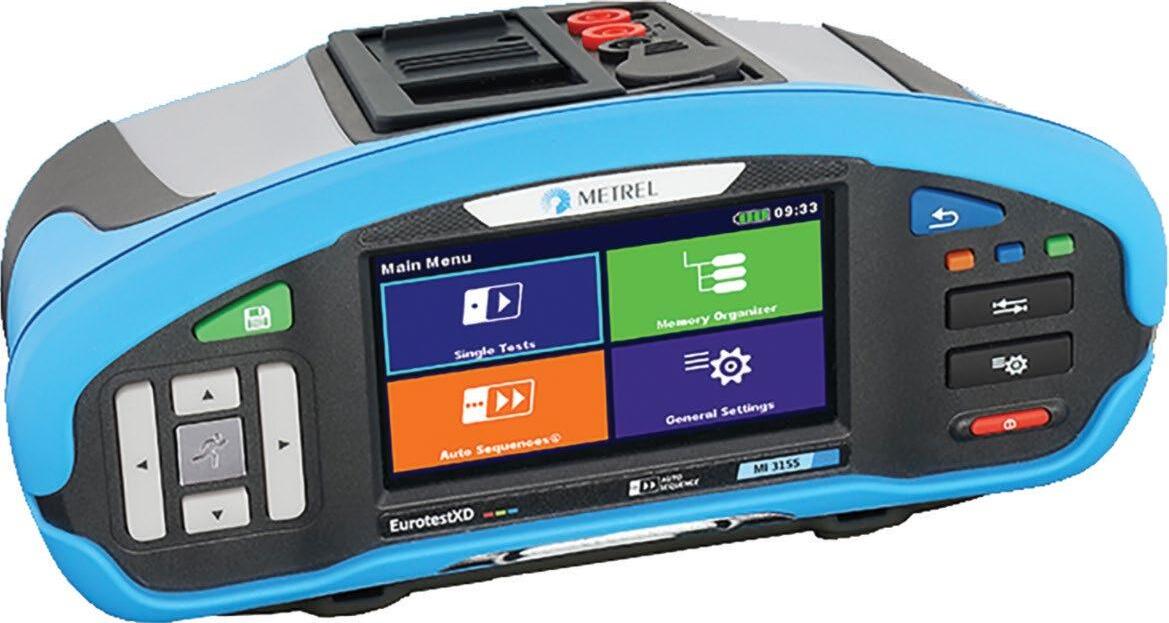

the recent changes to the Fair Work Act should be of great concern to NECA members, who are strongly encouraged to familiarise themselves with these changes. NECA is committed to supporting its members in managing the additional burdens imposed by the legislation and explaining the new requirements to members.
< Installation Verification & Compliance Testing Pass/Fail limits and “Auto Sequences” set to AS/NZS3017 and AS/NZS3019.
Dain Venning NECA SA/NT Workplace Relations Advisor
< Single Test Functions Voltage, Mohm & Ohms, RCD, Loop Impedance, Line Impedance, Earth Resistance, Power & Harmonics, Light, Wire Tracing.
< Site Schematics & Installation Reports
Save test results to the Site Schematic or Tree Structure. Start with Site Name and Address. Test reports output to PDF or Excel.
< High Volume RCD Testing System


< Single Test Functions
Complete high volume RCD testing & logging solution with bar-code scanner input of RCD IDs and logging of RCD push button tests.
Voltage, Mohm & Ohms, RCD, Loop Impedance, Line Impedance, Earth Resistance, Power & Harmonics, Light, Wire Tracing
< Installation Verification & Compliance Testing
< Site Schematics &
Pass/Fail limits and “Auto Sequences” set to AS/NZS3017 and AS/NZS3019.
< Single Test Functions
Voltage, Mohm & Ohms, RCD, Loop Impedance, Line Impedance, Earth Resistance, Power & Harmonics, Light, Wire Tracing
< Site Schematics & Installation Reports
Save test results to the Site Schematic or Tree Structure. Start with Site Name and Address. Test reports output to PDF or Excel
RETURNABLE & REUSABLE A win for efficiency and sustainability.
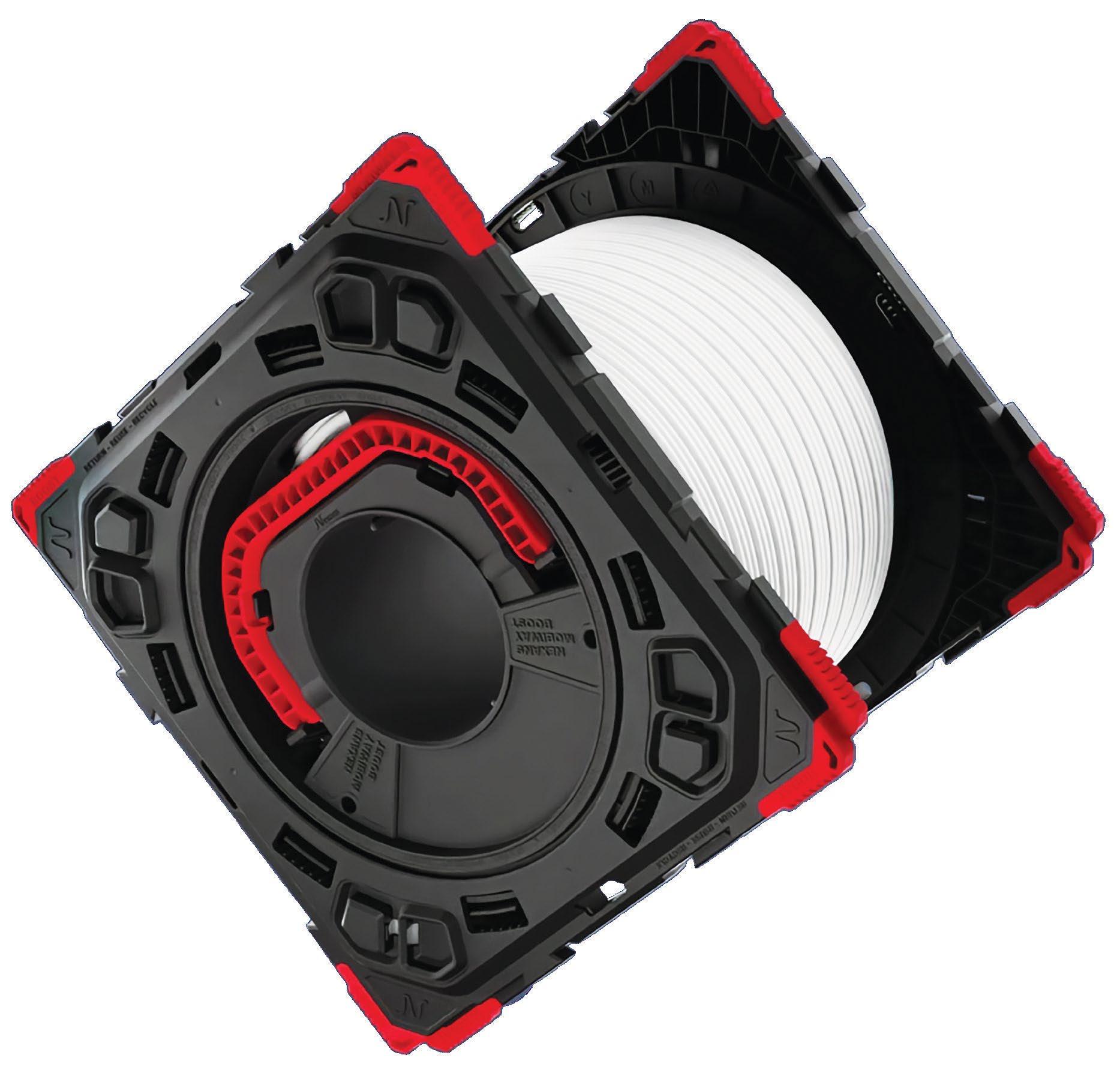
LONGER LENGTH PER DRUM WITH METRE MARKING to minimise scrap cable & maximise usage value.
SAVES TIME & COSTS while reducing waste on every worksite.
ROBUST SPOOL SYSTEM designed for ultimate safety & efficiency.
For 40 years the spool has remained



Designed with sustainability at its core, MOBIWAY BOOST the all-in-one cable management system is recyclable and reusable. Its design not only minimizes waste, reducing landfill impact, but also decreases the need for raw material mining contributing to a more sustainable electrification. The spool has been eco-designed to reduce its environmental footprint because it can be respooled and reused multiple times.
AS MANY OF YOU ARE AWARE, t HERE ARE CHANGES tO t HE CLOSING LOOPHOLES BILLS 2 COMING IN tO EFFEC t SOON. t HE DAt ES AND DE tAILS OF t HE CHANGES ARE OU t LINED BELOW.
On 1 July 2024, the Commonwealth Work Health and Safety Act 2011 will be amended to introduce a new criminal offence for industrial manslaughter and significantly increased penalties for other offences.
Although industrial manslaughter is already criminalised under some jurisdictions’ workplace health and safety legislation, or under a state or territory’s criminal code, this amendment will act to harmonise this offence across all states and territories.
Penalties of $18 million for a body corporate and 25 years imprisonment for an individual.
Category 1 (negligence or reckless conduct) penalties up to:
½ $3 to $15 million for a body corporate;
½ $600,000 to $3 million for officers;
½ $300,000 to $1.5 million for any other person.
If you are in a state or territory where industrial manslaughter is already a criminal offence, not a lot will change; but for those of you who aren’t, this law will impact officers. What we recommend you do is:
½ conduct an audit of your WHS policies SWMS etc;
½ provide training to staff and officers;
½ ensure that officers are across the WHS risks and policies in their area, to make sure they are comfortable with what is in place;
½ note that ignorance is generally not a defence.
26 August 2024
26 August 2024
26 August 2024
26 August 2024
26 August 2024
26 August 2024
1 November 2024
Under the new laws, there will be a new definition of ‘casual employee’ included in the Fair Work Act 2009.
the new definition will be that an employee is a casual only if:
Criminalisation of Industrial Manslaughter
Casual Employee Definition
Changes to Casual Conversion Process
Definition of Employer and Employee
Right to Disconnect
Unfair Contract terms
Same Job Same Pay
½ there isn’t a firm advance commitment to continuing and indefinite work, factoring in the real substance, practical reality, and true nature of the employment relationship;
½ the employee is entitled to be paid a casual loading or a specific pay rate for casuals.
½ you cannot rely on what the contract says alone;
½ you will need to regularly assess casual arrangements.
Assess casual arrangements and set up a regular timeframe for reviewing these agreements.
Under the new “employee choice” casual conversion pathway, the onus is on the employee to request the change to their employment status after 6 months (or 12 months for small businesses) by notifying their employer that they believe they no longer meet the definition of a casual employee.
If the employer accepts the notification, the employee’s employment status will change to permanent employment.
It should be noted that under this new pathway, the employer may still refuse the employee’s request on fair and reasonable grounds including:
½ the employer believes the employee is correctly classified as a casual employee;
½ there are fair and reasonable operational grounds for not accepting the notification;
½ a change of employment status would not comply with a recruitment or selection process required by a Federal or State / territory law.
If the employer does not accept the notification, they must advise the employee that they do not accept the notification on one or more of the grounds just mentioned.
Disputes about casual conversion may also be dealt with by the Commission.
Less administrative burden for employers.
What to do
Assess each request as it comes in.
the Fair Work Act will include new statutory definitions of ‘employee’ and ‘employer,’ where the “real substance, practical reality and true nature of the relationship” is considered when determining whether a worker is an independent contractor or employee.
½ employers cannot rely solely on what a contract says. Multi-factor tests will need to be undertaken before determining the category of a worker;
½ independent contractors who earn over a specified highincome threshold may opt out of the new employee definition, whether their principal contractor has asked them to or not.
What to do
½ review current contracts and assess each new employment relationship;
½ update recruitment and contracting policies;
½ train relevant staff, such as managers, HR people, and those involved with hiring and drafting contracts;
½ consider which individuals are independent contractors, or employees, by recognising the differences between written contracts and how they play out in practice;
½ identify those highly paid independent contractors and consider whether it would be appropriate for those contractors to utilise the opt-out mechanism, noting that the opt-out mechanism may have limited benefit for a principal, considering that an independent contractor may retract their opt-out notice at any time.
Employees will have a right to refuse to monitor, read, or respond to contact from an employer, customer, or client outside their working hours, unless that refusal is ‘unreasonable.’
Considerations for what is ‘reasonable’ includes:
½ reason for the contact;
½ form of contact and the level of disruption;
½ compensation for working outside ordinary working hours;
½ employee’s role and responsibilities;
½ employee’s personal circumstances;
½ if contact is required by law, or was an ‘emergency or a genuine welfare matter’.
Attempts to resolve a dispute must first be made between the employer and employee at the workplace level. If the dispute cannot be resolved, an application can be made by the employer or the employee to the Fair Work Commission to resolve the dispute.
the Commission will make an order either directing an employee to monitor, read and respond to contact after working hours, or directing the employer to stop expecting an employee to monitor, read and respond to correspondence outside of working hours.
½ communication and operational logistics;
½ a breach of Commission orders can result in a civil penalty;
½ taking adverse action against an employee for exercising their right to disconnect can enliven a general protections claim.
½ update policies, position descriptions, job adverts, contracts, etc;
½ consider on-call, overtime, or standby payments in compensation for connecting with staff after hours;
½ ensure you know employees’ ordinary hours;
½ train staff and managers on the new law.

Independent contractors earning below the specified contractor high income threshold can dispute allegedly unfair contract terms in the Fair Work Commission.
the Independent Contractors Act 2006 will continue to apply in the case of independent contractors who are paid above the new contractor high income threshold challenging their contract terms.
½ it will be easier for a contractor to dispute the terms of their contracts with the Commission than it is currently, with the courts;
½ increases in disputes are likely, in that the Fair Work Commission is a more cost-effective, applicantfriendly jurisdiction than the courts.
½ review contract terms to ensure the terms are fair;
½ seek NECA’s assistance if you need assistance in reviewing your contracts.
Although regulated labour hire arrangement orders can be made by the Fair Work Commission from 15 December 2023, these orders do not come into effect until 1 November 2024.
Under the Commission’s orders, from 1 November 2024, employers must pay employees working for host employers at least the same rate as specified in the host employer’s enterprise agreement (or equivalent employment instrument).
the Commission can only make an order if satisfied that the host’s enterprise agreement would apply to the labour hire worker if they were directly employed, and where a valid exception does not apply, which includes:
½ where it is not fair and reasonable in all of the circumstances to do so;
½ where the arrangement is for a service and not the supply of labour;
½ where staff are engaged under a training arrangement;
½ short term arrangements (less than 3 months).
½ this will increase the cost of labour hire employees;
½ it will also increase obligations when signing a new Enterprise Agreement.
½ start reviewing your need for labour hire and, if your Enterprise Agreement allows it, consider utilising fixed term contracts for periods greater than 3 months;
½ keep track of any Commission orders made between now and 1 November 2024;
½ consider amending contracts with labour hire companies to ensure they pay their staff at your Enterprise Agreement rates, if there is a labour hire order in place;
½ review your current contracts and consider the increased project costs when tendering or costing work that involves labour hire workers.













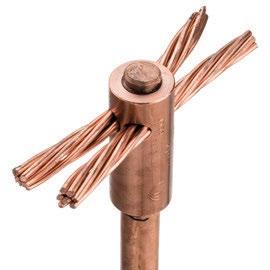



Schneider Electric, the leader of the digital transformation of energy management and automation, is today celebrating 100 Years of teSys. As digitisation heralds a new era of motor control performance and capability, teSys is ready to lead the industry again.
½ Electricity accounts for more than 90% of the total lifetime cost of ownership for a typical industry motor;
½ with soaring energy bills and carbon emissions, managing electric motor efficiency and sustainably is critical to the success of manufacturers and water and wastewater utilities around the world.
½ increasing energy volatility is forcing companies and governments worldwide to rethink energy management with more urgency;
½ gas prices increased 24x from Sept 2020 to Sept 2022;
½ escalating sustainability standards and requirements are creating mounting pressure to mitigate rising carbon emissions and environmental impacts;
½ companies must balance short-term energy needs and long-term climate targets;
½ plant managers are challenged to improve control and protection across all phases of a motor’s lifecycle;
½ for the design phase, they must choose the right options to comply with changing standards and overcome difficulties installing and integrating new motors with existing assets;
½ for the operations phase, they have to get buy-in from key stakeholders to digitise operations, so they can achieve anticipated energy savings;
½ for the maintenance phase, they have to change from reactive practices to predictive and preventive ones, to reduce downtime and increase productivity.
teSys motor controls come with all of the isolation, protection and emergency handling you need to comply with international codes. Highcontrast covers identify safety-critical devices to prevent inadvertent manual operation. Every teSys contactor is both mechanically linked and equipped with mirror contacts for safety applications and wherever auxiliary contact state reliability is critical.

For a century, teSys motor controls have driven the industry, with innovations in motor protection, monitoring, and control. Wherever you are, and anywhere your projects come together, you can trust Schneider Electric and teSys contactors, circuit breakers, relays, and switches for unmatched reliability, complete compatibility with international standards, and the robust support of the Schneider Electric global supply network.
New teSys motor control solutions leverage digitisation and electrification to enable load management, source management, and preventive maintenance while lowering the total cost of ownership for customers and end users. From the design and build phase through operation and maintenance, teSys provides a holistic lifecycle solution that advances advanced asset management and energy efficiency.
½ industry-leading protection with built-in arc flash safeguards and complete cybersecurity;
½ best-in-class reliability with proven functionality, built on 100 years of experience in protection relays;
½ ease of installation , use, and maintenance, with simple integration and engineering reducing total cost of ownership;
½ advanced connectivity, with digital tools to make everyday operation simpler.
As we kick off the second century of teSys innovation and leadership, our ambition is bold. We want to make 2024 the best year ever for the teSys range as we evolve our offer to meet current trends and customer challenges:
½ ugrading the platform from electro-mechanical to electronic;
½ reduces carbon footprint;
½ improves energy efficiency;
½ improving energy management capabilities with digitisation;
½ enables energy efficiency with real-time data;
½ allows proactive motor management;
½ increasing resilience with predictive maintenance;
½ optimises power availability and business continuity;
½ prevents motor failure and downtime;
½ reduces repair costs ;
½ enables future scalability potential.


se.com/au/tesys
Gain peace of mind over HVAC reliability with TeSys, compliant to IEC60335-2-40 standards.

Scan the QR code to learn more


Ben Shaw NECA TAS Member Manager
WE’VE HAD A BUSY QUAR t ER, WI t H LOt S HAPPENING IN OUR SEC tOR. I’VE RECEN t LY BEEN IN t HE MEDIA, SHINING A SPOt LIGH t ON t HE ISSUES MANY ELEC t RICAL CON t RAC tORS ARE HAVING IN OBtAINING REBAt ES FOR SOLAR INS tALLS; YOU CAN READ MORE ON t HAt BELOW.
I’ve met with the tasmanian Government and Powering Skills Organisation to discuss opportunities within workforce development and some of the issues currently facing the tasmanian construction industry.
We’re thrilled that the electrical trade has been added to the Hi-Vis Army, and NECA, together with NECA Education & Careers, will continue to work closely with industry and government to deliver on creating career pathways and opportunities for post-trade training.
these discussions continued at our third annual Electrical Sector meets Parliament event, where we were joined by Premier Jeremy Rockliff, Opposition Leader Dean Winter, Minister for Women, Small Business and Consumer Affairs
Madeline Ogilvie, Deputy Premier Michael Ferguson, Minister Felix Ellis, Minister Eric Abetz, the Honourable Simon Behrakis, and the Honourable Jacquie Petrusma.
We have also recently seen some important changes to licensing fees and levies (see below for more details). If there’s anything I can help with, or if you have a question for our technical, legal, or safety teams, please do not hesitate to contact us on 1300 361 099.
NECA has recently been made aware of contractors being unable to recover solar rebates from some providers under the Small-scale Renewable Energy Scheme (SRES).
You can find out more about this issue on the NECA website at www.bit.ly/necasres
If your business has been affected, please reach out to the NECA Legal team on 1300 361 099.

As of July 1, 2024, the annual increase in licence fees has come into effect. this increase will be across all of the various occupational licences and includes both new applications and renewals.
More information can be found by visiting the Consumer, Building, and Occupational Services (CBOS) website at www.bit.ly/cboslicencing2024
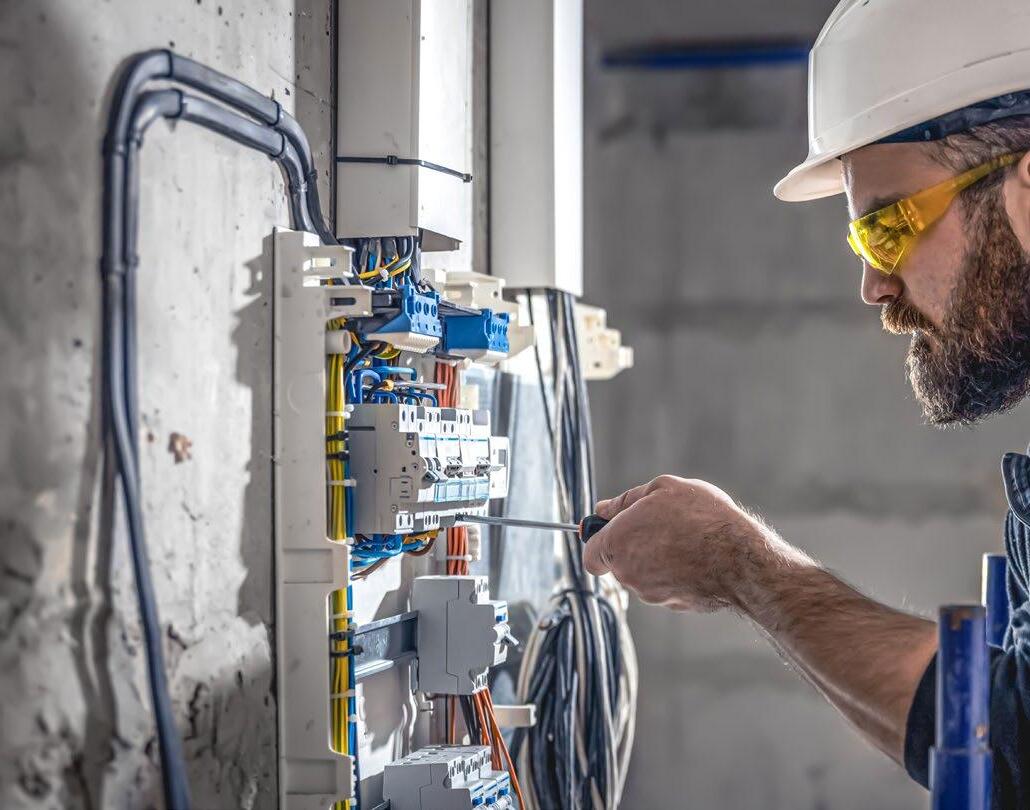

tasmania’s demographic layout means that we have a relatively small population spread across a broad area, including many areas that are considered regional and remote. this can hinder quality training delivery and access to learning opportunities for parts of the electrical contracting community. With the support of the tasmanian Government, over the past six months, NECA Education and Careers (NECA E&C) has been undertaking research to help develop innovative ways of addressing the significant challenges our industry faces in tasmania.
the overarching feedback NECA E&C are hearing is that industry is looking to diversify, but they are hindered by the lack of training opportunities in tasmania.
With industry feedback in hand, and the continued support of the tasmanian Government, NECA E&C will now consider the best way to improve access to relevant and timely training in the state. Industry will start to see the implementation of these initiatives over coming months.
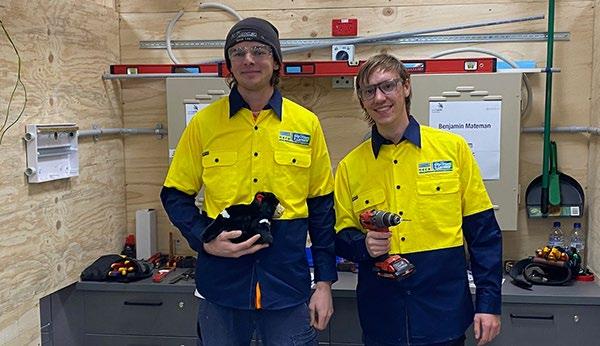
NECA tasmania hosted the third annual Electrical Sector meets Parliament event at Parliament House Hobart in August and we were pleased to be joined by members from the government, opposition and independents. the event gave industry members a fantastic opportunity to network and engage with our state’s political leaders in some great conversations, across a variety of topics.
Among the issues discussed were CPD reforms, Electronic CEC forms, strengthening of Security of Payments legislation, unfair contract terms, pipeline of projects and enhancing NECA’s footprint in the education and training space through support for the Hi-Vis army initiative and industry led training.
Congratulations to tasmanian NECA Education and Careers apprentices, Magnus Overdijk and Ben Mateman, who were recently selected to represent tasmania at the WorldSkills Australia Regional ANZEtA Electrical Apprentice Competition in Victoria.
WorldSkills is an opportunity for apprentices to test their skills and knowledge against their peers and offers those that do well at a national level an opportunity to travel internationally and test themselves against the best trades and skills talent in the world.








Rob Selymesi NECA VIC Executive Director Dean Spicer NECA VIC President
A WARM WELCOME tO ALL OUR NEW MEMBERS WHO HAVE JOINED t HE NECA VIC COMMUNI t Y OVER t HE LAS t FEW MON t HS. I t ’S BEEN GREAt tO SEE SO MANY OF YOU AS I’VE BEEN GE tt ING ACQUAIN t ED WI t H MEMBERS AND PAR t NERS ALIKE.
this edition of the magazine covers some of the broader challenges currently facing electrical contractors in today’s market, particularly for us Victorians. topics such as Security of Payment, Unfair Contract terms, Labour Shortages, and Increasing Labour Rates are just some of the issues Dean and I are hearing about in the field. We hope you gain some tangible ideas from reading the magazine, and if you need more support at any stage, contact the team on 1300 300 031.
We are pleased to announce the formation of the NECA Victoria Women in Advisory Group (WAG), a dedicated initiative to champion gender diversity, support career development, and empower women within the electrical and communications industry.
the Women’s Advisory Group, which met for the first-time last month, is committed to fostering an inclusive environment, where women can thrive and reach their full potential. the key objectives of the group are: to provide a voice for women, ensuring their interests and concerns are heard in industry discussions and decision-making processes; advocate for gender diversity by promoting policies and practices that encourage a more inclusive and diverse industry; support career development through mentorship, training, and professional growth opportunities; raise awareness of the challenges and opportunities faced by women in our industry, and; create networking opportunities and events for women to facilitate connections across the sector.
NECA Victoria’s technical team has been offering free mentoring to solar and battery installers across metro and regional Victoria over the past 18 months and is excited to continue this initiative as we close out the year.
A-Grade Electricians with SAA Accreditation can now earn 20 CPD points by completing a short test after the training session, fulfilling the requirements to become an accredited installer. If you are interested in taking advantage of this free service, reach out to us via necavic@neca.asn.au.
On Friday 5 July, electrical apprentices from all over Australia came together at NECA Education & Careers’ Dandenong Campus to compete in the WorldSkills Australia 2024 ANZEtA Regional Electrical Apprentice Competition.
Apprentices tested their skills by wiring a pre-defined installation according to circuit and equipment diagrams, drawing on the principles they have gained during their apprenticeship, in a friendly competition.
It was great to see NECA Education & Careers represented by talented apprentices from Victoria and tasmania who demonstrated the standard to which we train and mentor our apprentices.
I’d like to end by reflecting on the tremendous success of the 2024 NECA VIC Awards. the event was a hit, and the calibre of projects submitted this year surpassed even our high expectations, showcasing the industry’s continuous growth and evolution.
Photos and videos from the night can be accessed via NECA Victoria’s social media channels. We are excited to feature some of the award-winning projects, teams, and their successes in the next edition of this magazine.
Having been part of the nomination process on few projects over the years, I encourage you all to seriously consider nominating a project for next year’s awards. Even if you don’t win, it truly is a great opportunity to be recognised for the hard work we all do, no matter the size of your business.


I, along with NECA Victoria’s technical Manager Michael Weekes, and Head of Government Relations Kent Johns, recently met with Minister Lily D’Ambrosio, the Minister for Climate Action, Energy & Resources, and the State Electricity Commission.
the discussion covered the Electricity Legislation Review, apprentice supervision and training—particularly regulations concerning apprentice supervision—and exploring additional Electrotechnology
training opportunities, alongside NECA’s efforts at both the Victorian and national levels. they also addressed Minimum Energy Efficiency and Safety Standards for Rental Homes, focusing on safety concerns and pre-electrical inspection requirements for insulation installation.
NECA acknowledges Minister D’Ambrosio’s support and appreciates the government’s initiatives for the broader electrical industry, including support for women in trades and apprenticeships, and is keen to explore further steps and current initiatives.


Australia’s electrotechnology sector is facing a looming crisis that could challenge its future growth and innovation over the next two years. Driven by rapid technological advancements and a strong push towards renewable energy and investment in infrastructure and housing, the demand for electrotechnology services is soaring. However, the sector is grappling with a severe shortage of skilled workers, a gap poised to widen as the classroom capacity and number of accredited teaching staff falls well below demand, and as a significant portion of the workforce approaches retirement.
the short-term bottleneck for training capacity is particularly severe, creating a critical two-year void period where the supply of skilled workers falls drastically short of demand. the situation calls for an agile training and education system that can respond to industry needs.
the 2021 Skills Priority List (SPL) revealed that 60% of Electrotechnology and telecommunications trades Worker occupations are in shortage, compared to 19% across all other occupations. With 67% of electrician occupations experiencing shortages, these statistics underscore the severity of the issue.
the labour shortages have far-reaching implications, including delays in project completion, increased costs, and immense pressure on maintaining quality. the shortage hinders the sector’s ability to innovate and adapt to new technologies, putting Australia’s competitiveness at risk. Moreover, the inability to meet the growing demand for electrotechnology services could slow down the country’s transition to renewable energy and smart infrastructure.
However, NECA is taking substantial steps to address this issue head-on, through a proactive and collaborative approach, including enhanced training, apprenticeship programs, industry and stakeholder collaborations, advocacy, and upskilling initiatives.
Practical approaches to addressing labour shortages
transformative shifts in jobs and skills requirements necessitate an agile education and training system that can adapt to changing demands throughout a worker’s career. the rapid advancement
of digital technologies is reshaping the way we work, and businesses must invest in upskilling their workforce to stay competitive. the global push towards sustainability is creating new green jobs and transforming existing roles to align with environmental goals. Workers will need to acquire new skills related to renewable energy, energy efficiency and sustainable practices.
“Enhancing vocational training programs is essential for developing a skilled workforce. By promoting science, technology, engineering and mathematics (StEM) education at the school level, and encouraging students to pursue careers in electrotechnology, we can build a pipeline of skilled workers for the future,” says. Naveen Raghavan, Workplace Relations Consultant, Business Solutions Hub.
Apprenticeships are a cornerstone of NECA’s strategy to address labour shortages, providing practical, hands-on experience that is invaluable. High on the agenda of providing a robust apprenticeship program is modernising the curricula to reflect current and future industry demands.
the NECA Education & Careers PreApprenticeship course is a crucial initiative, designed to equip prospective apprentices with the foundational skills and knowledge necessary for a smooth transition into a long-term career path in the electrotechnology sector. this program offers hands-on experience and theoretical training, ensuring that participants are well prepared to enter the industry.
NECA’s collaboration with leading industry organisations and businesses, such as AWM, NHP, NECA E&C and Protect play a significant role in addressing labour shortages. these partnerships not only provide valuable resources and training but also create a supportive ecosystem that enhances the overall capabilities of businesses who are NECA members.

Industry collaborations facilitate the sharing of expertise and leveraging best practices. For instance, partnering with NECA E&C allows NECA members to access specialised training programs, that help upskill existing workers and attract new talent.
Moreover, collaborations with organisations like Business Solutions Hub help NECA members optimise their workforce management, include workforce planning, recruitment strategies, embracing diversity and streamlining HR management to reduce the impact of labour shortages on project timelines and costs.
Naveen says, “these partnerships are crucial in fostering innovation and growth within the industry. By leveraging each other’s strengths, we can develop comprehensive solutions to labour shortages, ensuring that NECA members remain competitive and capable of meeting future client demands.”
temporary solutions may be required in the short term, but a long-term investment in educational facilities is essential to avoid future labour shortages.
NECA remains vigilant in ensuring that members are equipped with the necessary information and insights to allow them to manage the now, and plan for future. By actively working with government and educational institutions, NECA advocates for members, ensuring that training programs align with current industry needs.
“It’s about creating a sustainable future for the electrotechnology sector, where skilled labour is not a bottleneck but a catalyst for growth,” Naveen said.
If you need assistance filing the gap with skill shortages, developing an apprentice program, integrating women into your workforce or building a diverse workplace, give the experts at Business Solutions Hub a call on 1300 445 687. that’s better for business.
Lina Altarifi Executive General Manager, Business Solutions Hub
When

MIKE PURNELL - Protect Group Director Employer Representative

When




Adam Hoes NECA WA Member Manager
WELCOME tO t HE WA S tAt E SEC t ION OF t HE SEP t EMBER EDI t ION OF NECA NEWS.
the second half of the year kicked off with a bang, with the 2024 NECA WA Awards being held at the Westin Ballroom. this was a fantastic night, with almost 450 guests in attendance. We’ll be featuring this event in the next edition of NECA News, so I won’t go into too much detail here, other than to say I am so proud of the WA electrical sector, the quality of work we are producing and the achievements of the individuals who dedicate so much of their time to our industry. thank you for your support, your commitment and for making the night such a wonderful success.
there are several new legislative changes, industry pressures, and safety regulations to be aware of. the NECA team are working tirelessly to keep you across these and to advocate for our members and for a stronger industry.
We’re also meeting regularly with state and federal politicians, and other industry stakeholders, to take our concerns directly to the policymakers and those with the power to make changes for the better within our sector. You can read more about some of the recent work NECA WA
General Manager Scott Faragher has been doing in this space below.
Keep an eye out for upcoming announcements on some exciting NECA events we’re busy planning for the back half of the year; there is lots happening and we’re looking forward to seeing you there.
With so many changes occurring recently, there’s a lot to keep up with. If there’s anything we can assist with, or if you have a question for our technical, legal, or safety teams please do not hesitate to contact us on 1300 361 099.
NECA has recently been made aware of contractors being unable to recover solar rebates from some providers under the Small-scale Renewable Energy Scheme (SRES).
You can find out more about this issue on the NECA website at www.bit.ly/necasres
If your business has been affected, please reach out to the NECA Legal team on 1300 361 099.

Vale Mike Green
It is with great sorrow we recognise the passing of a great leader of the electrical industry, Michael Green. Mike was a friend to many, with a fun-loving personality, always driving others to success.
A former pilot with Ansett Airlines, Mike decided on a change of vocation later in his career, commencing an electrical apprenticeship in 1991.
Mike served as a NECA executive for two years and was on the NECA national council as the Vice President for another two years.
Mike’s unwavering commitment to the industry and tireless efforts to drive the sector forward with NECA/ ECA, and other industry bodies, was pivotal in shaping the WA electrical community into what it is today.
We thank Mike, not only for his contributions to NECA, but for his significant impact on the WA electrical industry.
NECASafe has developed four safety systems: NECASafe Light, NECASafe Digital, NECASafe Generator and NECASafe Empower. these systems are designed to offer comprehensive support to businesses of all sizes and management styles, giving you confidence in your safety management to achieve:
Essential Digital Safety Compliance
Support in obtaining JAZ/ ANZ certification in:
½ AS/NZS ISO 45001:2018 OH&S Management Systems;
½ ISO 14001:2015 Environmental Management Systems;
½ ISO 9001:2015 Quality Management Systems Certifications.
the WA Government is now offering a grant that covers 50% of the costs for our NECASafe Empower System, as well as an independent JAZ/ANZ audit.
to find out how you can take advantage of this fantastic opportunity, contact the NECASafe team on 1300 361 099.

the Workers Compensation and Injury Management Act 2023 is now in effect.
WorkCover WA is the regulatory counterpart to regulate and administer the workers compensation scheme in Western Australia under this new act.
More information surrounding this new legislation can be found on WorkCover’s website, www.workcover.wa.gov.au
the work health and safety regulations banning the manufacture and supply of engineered stone slabs and panels are now in effect in Western Australia.
A transition period will last until 31 December 2024, whereby pre-existing contracts entered into before 1 January 2024 for engineered stone, may be honoured.
More information surrounding the ban is available at www.bit.ly/engineeredstone

In line with Western Power’s key site responsibilities when working LIVE, any PCBU on the connection scheme (SACS, CCS) must adhere to the following rules and responsibilities:
½ mandatory appointment of a safety observer (licensed electrician with U t EDRIS011 training and current LV rescue and first aid/CPR accreditation) while connecting into mini/uni-pillars;
½ annual service connection accreditation to be performed at P t S;
½ all participants must be trained in U t EDRIS011 to ensure competency.
Your safety is top priority. Let’s work together to keep everyone safe!
Scott Faragher, NECA WA’s General Manager, was recently invited to attend a Small Business Roundtable with the Australian Small Business and Family Enterprise Ombudsman, the Hon Bruce Billson, in Perth.
Scott advocated for several of the key issues our industry is currently facing, including unfair contract terms, security of payment, and skills shortages. these are concerns that NECA has been advocating for with several key government and industry stakeholders, and will continue to raise, in our efforts to establish a stronger and more equitable electrical and communications industry.

the WA and Australian Government recently announced funding to establish the Clean Energy Skills National Centre of Excellence. the centre will be funded via the National Skills Agreement and through the turbocharging tAFE centres of excellence measure. When established, it will specialise in the delivery of training in clean energy technologies, including solar, wind, hydrogen and batteries.
NECA is proud to be able to continue working with the WA Government on shaping the successful delivery of this initiative.
Scott Faragher, NECA WA General Manager is pictured above with Jim Walker, Chairman of the WA State training Board, representing the electrical industry at a forum hosted by the WA Department of training.

the State Government is progressing initiatives to improve regulation around the short-term rental accommodation (StRA) sector, including the implementation of a register for StRA properties. these initiatives came into effect from 1 July 2024 and put beyond doubt the requirement for owners to install and maintain smoke alarms in dwellings made available as StRA.

An updated Smoke alarms in dwellings for sale, rent or hire fact sheet is also available from Building and Energy’s website. Western Australia’s smoke alarm laws require owners to have compliant smoke alarms in dwellings that are subject to transfer of ownership, rent or hire.
to download a copy of the Smoke alarms in dwellings for sale, rent or hire fact sheet visit www.bit.ly/smokealarmfactsheet

Unlicensed electrical work carried out in Northam has led to fines totalling $45,000 against a local air-conditioning company and one of its employees.
Following prosecutions by Building and Energy, separate cases were heard at Midland Magistrates Court against the airconditioning company and a refrigeration and air-conditioning (R&AC) technician.
the courts were told the technician did not hold any electrical licences when he performed electrical work for the company while repairing air-conditioning units at multiple premises in Northam between January and May 2022.
Under WA’s electricity licensing regulations, R&AC technicians must hold a restricted electrical licence authorising them to carry out certain limited electrical work on R&AC appliances and installations. the individual’s previous R&AC restricted electrical licence expired in 2007.
According to facts presented to court for both matters, during the offending period the employee’s work included modifying,
disconnecting and reconnecting electrical wiring, and replacing electrical components in air-conditioners.
the technician also carried out tasks that even exceeded the scope of a restricted electrical licence, including installing an air-conditioner isolator switch and air-conditioner interconnect wiring. By law, only a licensed electrical worker can carry out this work. the company was fined a total of $37,500 and ordered to pay $643.50 in costs after pleading guilty to breaching the regulations by employing an unlicensed worker for electrical tasks.
Electrician in court after unsupervised apprentice receives shock
An electrical apprentice was lucky to escape serious injury after receiving an electric shock at work, resulting in Building and Energy prosecuting the supervising electrician and the employer.
At Armadale Magistrates Court this month, an electrical worker was ordered to pay a $3,000 fine and $553.80 costs, after pleading guilty to failing to effectively supervise the apprentice’s electrical work.
two Perth companies and three individuals have been fined almost $40,000 for an electrical licencesharing arrangement involving solar installations at 25 properties.
At Perth Magistrates Court on 11 June 2024, two companies and their directors pleaded guilty to offences under WA’s electricity licensing regulations. A third man previously pleaded guilty in April to related charges.
Under the regulations, only a person authorised by an Electrical Contractor (EC) licence can carry on business as an EC. this includes entering into contracts, employing Electrical Workers (EWs), and authorising EWs to complete electrical safety certificates for electrical installing work carried out on behalf of the EC.




Nataisha Martin NECA ACT & Southern NSW Member Manager
the WorldSkills Australia Regional ANZEtA Electrical Apprentice Competition recently wrapped up in Melbourne, with a fantastic result for the ACt, you can read all about Max’s achievements below. there are several important legislative and regulatory changes you need to know about which are being brought into effect in the ACt, and although it can be challenging to keep up with these changes, it is vital to ensure your business is compliant and up to date.
Behind the scenes, the NECA team are hard at work developing a number of initiatives to give our members a stronger voice within the industry. there’s lot’s being done so stay tuned for some exciting announcements coming soon!
NECA has been made aware of recent issues with contractors being unable to recover solar rebates from some providers under the Small-scale Renewable Energy Scheme (SRES).
If your business has been affected, please reach out to the NECA Legal team on 1300 361 099.
Effective from 11th September 2024, new electrical licensing legislation will require all electricians beginning or continuing working on photovoltaic (PV) and battery system installations to obtain an endorsement on their electrical license. these systems
are referred to as Distributed Energy Resources (DER) and include:
½ installation of photovoltaic panels;
½ installation of grid-connected inverters as part of a photovoltaic system;
½ installation of battery systems.
From 11 September 2024, if you want to undertake electrical wiring work on a DER it will be an offence for you to carry out work without an endorsement on your license.
You can find out more at www.bit.ly/4g36KIy
Evoenergy are no longer installing Point of Entry (POE) boxes.
this decision follows engagement with the Australian Energy Regulator (AER) on Evoenergy’s five-year electricity network plan for the 2024-2029 period.
Key changes:
½ POE installations for all basic connections are now the responsibility of customers and their contracted builder or electrician;
½ this change aligns POE box installation requirements with those for Point of Attachment (POA) and meter box installations for basic connections, as well as POE boxes on larger projects;
½ Evoenergy has developed a standard that will be required for these installations.
Electrical workers are reminded to refresh themselves on the requirements for working near Evoenergy network infrastructure, safe approach distances and the requirements to be accredited with Evoenergy.
By being authorised and accredited with Evoenergy, licensed electricians in the ACt can:
½ install and/or remove service fuses at the network boundary for single premises; and/or
½ terminate consumer mains cables at the network boundary of single premise installations; and/or
½ apply for an Evoenergy key to access metering or isolation locations in multi-tenancy installations.
On Friday 5th July, electrical apprentices from the ANZEtA network of Group training Organisations competed in the WorldSkills Australia Regional ANZEtA Electrical Apprentice Competition in Melbourne. this event offered an opportunity for apprentices across Australia to demonstrate their practical and theoretical skills and knowledge by completing a complex wiring installation.
the competitors were vying for a gold, silver or bronze medal, with the winner also awarded the opportunity to represent ANZEtA in the WorldSkills Australia National Competition in 2025.
NECA training & Apprenticeships ACt was represented by Max Figgis, a recently graduated NECA Apprentice, trained by NECA training in the ACt. We are so very pleased to report that Max won the Gold Medal, with a score of 98.5/100!
Congratulations to all the competitors and thank you to NECA Education & Careers Victoria for hosting the competition.
NECA training ACt offers a range of Apprenticeship and Post-trade courses:
Nationally accredited Apprenticeship training:
½ UEE30820 Certificate III in Electrotechnology – Electrician
½ UE t 30621 Certificate III in ESI
– Distribution Overhead
½ UEE30821 Certificate III in ESI – Distribution Underground
Nationally accredited Post trade training:
½ Accredited Service Provider
– Level 1, Level 2, Observer - Initial and Refresher
½ CPR-LVR
½ First Aid
½ Working safely in the vicinity of live electrical apparatus
½ Working at Heights
½ Enter and work in Confined Spaces
½ 10852NAt - Course in Working Safely with Asbestos Containing Materials
½ 10830NAt – Course in Crystalline Silica Exposure Prevention
½ ACMA – Open Registration and Endorsements
½ Cable-Jointing
½ Solar Grid Connect + Battery Storage
½ Installation testing (AS3000 + AS3017)
½ Construction Site Electrical Installations (AS3012)
½ Isolate, Lock Out -tag Out
½ Electrical Safety (Safe Work, Code of Practice)
½ Smart Meters
If you would like to know more about these courses or are planning on working in the ACt and would like to know more surrounding ACt rules, please contact NECA technical on 1300 361 099.


WorkSafe ACt has recently placed an emphasis on workplace induction processes, work health and safety practices, and risk assessments.
to help ensure your business processes are adequate we have put together a short checklist below.
For further information, or to arrange an annual safety compliance review, please contact NECA’s safety team on 1300 361 099.
Prioritise
Emphasise the importance of safety with your staff in the fastpaced electrical sector.
Adopt Robust Induction Processes
Follow WorkSafe ACt’s guidelines for induction in Work Health and Safety and risk assessments. www.bit.ly/4dZz3G6
Implement NECASafe Systems
Use NECASafe’s comprehensive safety management systems, designed by industry experts for the electrotechnology industry. www.bit.ly/3AHmpgN
Utilise Membership Benefits
take advantage of NECA Membership benefits, including complimentary compliance checks.
neca.asn.au/branch/necasafehseq
Ensure Compliance
Verify that your business safety system complies with regulations before onboarding new employees.
Maintain Effective Safety Practices
Keep your safety practices current, efficient, and effective.
Focus on Electrical Safety
Electrical Safety will be the focus of the October Risk Focus Program.



Julia Cassar NECA Member Manager Nataisha Martin NECA ACT & Southern NSW Member Manager
t HE SECOND HALF OF t HE FINANCIAL YEAR IS OFF tO A FLYING S tAR t, WI t H NEW LEGISLAt IVE CHANGES, INDUS t RY PRESSURES, AND SAFE t Y REGULAt IONS tO BE AWARE OF.
the NECA team are working tirelessly to keep you across these, and to advocate for our members and for a stronger industry. You may have recently seen NECA in the media, shining a spotlight on the issues being caused by recent industrial action between the EtU and DNSPs, or on the issues many electrical contractors are having in obtaining rebates for solar installs (you can read more on that below).
We’re also regularly meeting with state and federal politicians to take our concerns directly to the policymakers, and those with the power to make changes for the better within our sector. Since the last edition of NECA News, we’ve spoken directly with Deputy Federal Opposition Leader, Sussan Ley, NSW Opposition Leader, Mark Speakman, NSW Government Whip and Deputy Chair of the Legislative Assembly Committee on transport and Infrastructure, Nathan Hagarty, and federal independent member, Dai Le, to name just a few.
Keep an eye out for upcoming announcements on some exciting
NECA events we’re busy planning for the back half of the year; there’s lots happening and we’re looking forward to seeing you there.
With so many changes occurring recently, there’s a lot to keep up with. If there’s anything we can assist with, or if you have a question for our technical, legal, or safety teams, please do not hesitate to contact us, on 1300 361 099, or at memberservices@neca.asn.au.
NECA has recently been made aware of contractors being unable to recover solar rebates from some providers under the Small-scale Renewable Energy Scheme (SRES).
You can find out more about this issue on the NECA website at www.bit.ly/necasres
If your business has been affected, please reach out to the NECA Legal team on 1300 361 099.

SafeWork NSW now requires notification when you intend to repair, make minor modifications to, or remove, an engineered stone benchtop, panel, or slab, that is already installed. Examples that will affect businesses in the electrotechnology industry include minor modification to install a new powerpoint, using a drill, sanding after resin is used to repair a crack, or trimming a hole to install a replacement stovetop.
Effective from 1st July 2024, businesses need to notify their estimated annual activity, using notification forms available on the SafeWork NSW website. this notification should be updated annually, or whenever your estimations differ from your last notification. Businesses are required to re-notify within 30 days of the 12-month notification anniversary and retain a copy of notifications for five years.
From 1st September 2024, the changes mandate that all PCBUs must control CSS and have documented risk assessments. If these risk assessments determine the processing of CSS as high risk, there will be further requirements to comply with, which SafeWork NSW will advise at a later date.
An important reminder: Safe Work Australia considers any work that is carried out in an area that may have a contaminated atmosphere as a highrisk construction activity. this includes an area that has been contaminated by silica dust. therefore, it is compulsory to use a Silica Safe Work Method Statement (SWMS). SafeWork NSW has underscored that additional requirements need to be incorporated into the Silica SWMS from 1st September 2024 onwards.
NECA will be monitoring these updates to ensure our NECASafe Silica SWMS is updated in line with the changes. You can purchase these SWMS via our Safety Specialists website. NECA Members are encouraged to contact NECASafe to discuss going digital with your WHS procedures. Our specialised NECASafe team has a solution for your business size and requirements.
SafeWork NSW has advised that spot checks are highly likely to be undertaken following each implementation date.

Ensuring safety and regulatory compliance is paramount in every electrical installation and work environment. Compliance with the Wiring Rules (AS/NZS 3000:2018) not only protects lives and property but also ensures legal adherence to various state regulations, including the NSW Work Health and Safety (WHS) Regulation 2017 and the Gas and Electricity (Consumer Safety) Act 2017.
Compliance is Essential
Safety First
AS/NZS 3000:2018 aims to prevent electrical hazards that could result in injuries, fires, or fatalities. Adhering to these standards mitigates risks associated with faulty installations, improper wiring, or inadequate electrical safety.
In NSW, the WHS Regulation 2017 & Gas and Electricity (Consumer Safety) Act 2017 mandates that all electrical work be conducted safely and compliant, to protect the health and safety of workers
and the public. Non-compliance can lead to penalties, legal consequences, and potential liabilities (See relevant clauses in Part 3.1 & 4.7 WHS Reg 2017).
Consumer Protection
the Gas and Electricity (Consumer Safety) Act 2017 No 15 requires electrical installations to comply with AS/NZS 3000:2018 Wiring Rules. It grants authority to Building Commission (formerly known as Fair trading) inspectors to enforce compliance with these standards.
Compliant installations and maintenance practices reduce the risk of electrical shocks, fires, and other hazards.
By adhering to AS/NZS 3000:2018 and related NSW regulations, businesses can avoid fines, legal disputes, and damage to their reputation.
Ensuring compliance enhances the quality and reliability of electrical installations, promoting longevity and efficiency.
SafeWork NSW Inspectors will be proactively visiting construction sites across NSW through to the end of November 2024, to check for safety when working on, or near, electricity.
SafeWork Inspectors take a zerotolerance approach to workers’ lives being placed at risk and can issue on-the-spot fines of up to $3,600 for businesses and $720 for individuals.
take these simple measures to keep workers safe:
1. every site is different, and hazards differ from site to site. Complete a risk assessment and safe work method statement (SWMS) for work on or near energised electrical installations or services;
2. assess the risk in consultation with workers and ensure all workers are across the SWMS and site safety rules;
3. supervise apprentices and young or inexperienced workers;
4. isolate and test for dead. Do not work live (particularly during maintenance or repair work) ;
5. make sure all electrical work is conducted by a licenced person, and temporary electrical installations and equipment is maintained and tested by a licenced electrician;
6. provide and check residual current devices (RCD). RCDs save lives;

7. before you get on site, plan ahead. Check the voltage of powerlines with the Look up and Live app, and find underground powerlines via a Before You Dig Australia search;
8. contact the electricity supply authority and implement the prescribed control measures before erecting scaffolding, or using mobile or fixed plant, near overhead powerlines;
9. mobile plant operators, truck drivers and other workers should take appropriate actions to work safely near powerlines, and use a trained spotter;
10. use SafeWork NSW’s Electrical safety in construction inspection checklist, developed for principal contractors and site supervisors, to assist in complying with electrical requirements when on construction sites.
Under the Work Health and Safety Amendment (Industrial Manslaughter) Act 2024, which came into effect in June, the maximum penalty for an industrial manslaughter offence in NSW is now 25 years imprisonment for an individual. Persons conducting a business or undertaking (PCBUs) and officers of PCBUs will commit industrial manslaughter when they engage in grossly negligent conduct that breaches their work health and safety duty they owe to an individual and cause the death of that individual. these new laws do not impose additional work health and safety duties.
the introduction of this offence represents not just a significant deterrent to unsafe workplace behaviour but also holds those liable who are guilty of the most serious of WHS breaches.


the fines for businesses that fail to comply with their duties for electrical work have increased, many from $3600 to $4500. the new fines include:
½ fail to take unsafe electrical equipment out-of-service –$2700 ($550 sole traders);
½ fail to inspect and test electrical equipment – $2700 ($550 sole traders);
½ work on energised electrical equipment in contravention of prohibition – $4500 ($900 sole traders);
½ fail to confirm de-energised by a licensed electrical supervisor before electrical work – $4500 ($900 sole traders);
½ fail to treat as energised until isolated and confirmed de-energised – $4500 ($900 sole traders);
½ fail to lock-out or otherwise prevent re-energisation –$4500 ($900 sole traders);
½ fail to prevent unauthorised access to area where energised work is being undertaken –$4500 ($900 sole traders);
½ fail to prevent accidental contact with other nearby energised conductors – $4500 ($900 sole traders);
½ fail to protect equipment with an RCD in specific circumstances – $4500 ($900 sole traders).
In addition, license holders (contractors and supervisors) that fail to comply can have their actions/omissions referred to the building commission for possible suspension or cancellation of license.
SafeWork NSW has launched a new strategy aimed at making sure businesses manage psychosocial risks in the workplace.
SafeWork NSW Inspectors will be conducting psychosocial WHS checks during visits to large workplaces, with 200 or more workers, to ensure businesses are meeting their legal duty to identify and manage psychosocial hazards and risks.
the strategy also continues to support small and medium size businesses, with initiatives such as ongoing access to free workplace mental health training and coaching.
this focus comes as data shows psychological injuries are on the rise in NSW workplaces. Workers’ compensation claims for psychological injury rose 30% in the four years to 2022/23, compared to 11% for physical injuries.
Common psychosocial hazards that businesses need to know about and manage include high job demands, exposure to traumatic events, and harmful workplace behaviours, like bullying and harassment, including sexual harassment.
It was fantastic to see tony Kemper, a NECA life member, attending the Wollongong Industry Night recently and still remaining so active in the industry. tony has been a member since 1960 and, at 88 years old, he still passionately attends NECA Industry Nights and is an ongoing advocate for NECA.
NECA Member Manager, Nataisha Martin said “tony is one in a million; an honest advocate, a true gentleman, who continues to attend industry nights, even though retired. thank you for your unconditional support and legendary status!”

NECA t RAINING AND APPREN t ICESHIPS IS A NOt-FOR-PROFI t REGIS t ERED GROUP t RAINING BUSINESS OWNED BY NECA. OVER t HE LAS t 35 PLUS YEARS, NECA t RAINING AND APPREN t ICESHIPS HAS GROWN tO BECOME t HE PREMIER PROVIDER OF APPREN t ICES tO t HE ELEC t RICAL AND COMMUNICAt IONS INDUS t RY. WI t H OFFICES IN SYDNEY, BRISBANE AND t HE AC t, t HERE ARE CURREN t LY 800 APPREN t ICES UNDER tAKING t HEIR t RADE t RAINING AND GAINING EXPERIENCE IN t HE DIVERSE RANGE OF WORKSI t ES NECA MEMBERS OFFER.
NECA training and Apprenticeships can offer a range of benefits for your business over selfemploying apprentices:
½ labour flexibility to cope with your peak times and quiet times;
½ simple pay rates that take into account college studies, all types of leave, worker’s compensation, super, tax, RDOs and more;
½ recruitment and retention risks belong to NECA, not the host;
½ your apprentice turns up ready to work with full uniform, PPE and initial safety training;
½ no need for you to understand the complexity of the national training system;
½ field officers work with you to understand your needs, mentor the apprentices and address any issues that may arise. Unlike many competitors, NECA’s field officers are all experienced electricians, drawn from the contracting industry;
½ ensure the apprentice fits with your team and the type of work you do; if they don’t, NECA will find one that does;
½ an excellent option for specialist businesses, as apprentices can be moved around, ensuring they all get a well-rounded experience, while your business has the labour it needs.
these benefits apply to businesses of all sizes. NECA’s current hosts include the full range, from small family companies to the industry’s largest majors. With economies of scale and experience in apprenticeship training, NECA’s rates are very competitive compared to the total cost of selfemploying, and we also take on most
of the risks of employment. For this reason, the scheme has grown steadily since its inception, and some current hosts are now led by former NECA apprentices, who’ve experienced the value of group training first-hand.
NECA has been recruiting and providing apprentices to the electrical industry for a long time, and over that time, we have developed a system of identifying candidates that are a sure fit for our industry. Our candidate identification and on-boarding processes take the risk away from your business wasting time with apprentices who are not dedicated
or passionate about an electrical apprenticeship. this is reflected in our apprentice completion rates, which are higher than the industry average. With over 95% of our apprentices securing employment with our host employers post their apprenticeship, it tells the story that a NECA Apprentice is a highly valued asset to any employer. to find out more, call your local NECA Gt office and enquire about becoming a host email us at contact@necatraining.com.au.

NECA Electrical Apprenticeships employ quality apprentices and place them with host companies for any amount of time from 3 months to 4 years.
NECA employ quality apprentices and place them with host companies for any amount of time from 3 months to 4
Becoming a host company means that you pay a fixed charge out rate, whilst we take on all the added costs, responsibilities and risk.
Becoming a host company means that you pay a fixed charge out rate, whilst we take on all
Build your future: 97% of our graduating apprentices are employed by their host on completion.
Build your future: 97% entices are employed by their host on completion
NECA ELECTRICAL APPRENTICESHIPS PROVIDE
Advertising
NECA ELECTRICAL APPRENTICESHIPS PROVIDE Advertising Recruitment
Recruitment

Interviews and selection
Interviews and selection
Medicals including colour blindness test
Payroll
Medicals including colour blindness test Payroll
On-going monitoring and mentoring by licensed electrical field staff
On-going monitoring and mentoring by licensed electrical field staff
All administration and paperwork
All administration and paperwork
TAFE (monitoring results)
TAFE (monitoring results)
COSTS INCLUDED IN THE CHARGE OUT RATE
COSTS INCLUDED IN THE CHARGE OUT RATE
Annual Leave days
Sick days
Public holidays
TAFE days (36/yr)
Public holidays TAFE days (36/yr)
TAFE fees
TAFE fees
Superannuation
Superannuation
Uniforms and PPE
Uniforms and PPE
Workers Compensation
Workers Compensation
WE ARE NOT-FOR-PROFIT | PASSING THE BENEFITS ON TO YOU
WE ARE NOT-FOR-PROFIT | PASSING THE BENEFITS ON TO YOU
Connect with your local NECA centre
Connect with your local NECA centre
ACT Brett McIntyre T (02) 6280 5580
ACT Mick Apps T (02) 5580
NSW Brad Hoffman T (02) 9744 2754
NSW Brad Hoffman T (02) 9744 2754
ELECTRICAL APPRENTICESHIPS
QLD Mark Wood T (07) 3276 7950 necatraining.com.au
QLD Mark Wood T (07) 3276 7950 necatraining.com.au
AS t HE ELEC t RICAL INDUSt RY CON t INUES tO EVOLVE, WI t H t ECHNOLOGICAL ADVANCEMEN tS AND St RIC t ER SAFE t Y REGULAt IONS, t HE DEMAND FOR HIGHLY SKILLED ELEC t RICIANS, WHO CAN PERFORM COMPLEX INStALLAt ION t ESt ING, HAS NEVER BEEN GREAt ER. FOR POSt-t RADE ELEC t RICIANS LOOKING tO StAY AHEAD IN t HIS DYNAMIC FIELD, SPECIALISED t RAINING IN INStALLAt ION t ESt ING, PARt ICULARLY IN ADHERENCE tO AS3000 AND AS3017 StANDARDS, IS CRUCIAL.
The Importance of AS3000 and AS3017 Standards
the Australian Standards AS3000 and AS3017 are pivotal in ensuring the safety, reliability, and efficiency of electrical installations. AS3000, also known as the ‘Wiring Rules,’ sets the foundation for electrical installations in Australia, covering the design, construction, and verification processes. Meanwhile, AS3017 outlines the procedures for testing and inspecting electrical installations, ensuring that they meet the required safety and performance standards. For electricians, understanding and applying these standards is not just a legal requirement; it is also a critical component of professional competency. Understanding these standards ensures

that electricians can confidently perform installation testing, identify potential issues, and provide solutions that enhance safety and efficiency.
NECA training’s Electrical Installation testing (AS3000 + AS3017) course is designed to refresh electricians’ knowledge and practical skill in conducting thorough installation tests. the course covers a range of topics, including:
Understanding AS3000 and AS3017
Electricians dive deep into these standards, gaining a comprehensive understanding of the requirements and how to apply them in various scenarios.

Practical training on using advanced testing equipment, performing inspections, and identifying areas of non-compliance. Electricians learn how to document their findings and recommend necessary corrections.
Risk assessments, safe work practices, and the importance of compliance, to prevent accidents and ensure long-term operational safety.
the electrical industry is constantly evolving, with new technologies, such as smart grids and renewable energy systems, becoming more prevalent. Advanced training ensures that electricians are up to date with these trends, and can integrate them into their work.
NECA training has Centres of Excellence in NSW and the ACt that are fully equipped to deliver electrical safety training and a wide range of other post-trade, apprenticeship and pre-apprenticeship courses.
For more information, please visit our website, at www.necatraining.com.au

UPGRADE YOUR SKILLS
NECA Training has purpose built state-of-the-art facilities in Fyshwick (ACT) and Chullora (Sydney) providing the latest digital IP equipment and HANDS-ON training with high end technical resources.
If you wish to gain the ACMA registration, by choosing to train with NECA you’ll have access to our holistic facility. Experienced trainers deliver the courses so you can be up to date in this exciting and ever evolving industry. Learn best practices, improve your productivity, expand your knowledge and grow your career.
NECA TELECOMMUNICATIONS PROVIDE Nationally recognised training
TELECOMMUNICATIONS COURSES AVAILABLE Open Registration Courses

Visit our website for more details, course times and costs.
ONLINE necatraining.com.au NSW (02) 9288 4424 skills@necatraining.com.au ACT (02) 6280 5580 act@necatraining.com.au


Christopher Gradwell NECA QLD Member Manager
t HERE’S BEEN LOt S HAPPENING IN QUEENSLAND RECEN t LY ACROSS ALL FRON t S, AND YOU’LL FIND SOME GREAt INFORMAt ION ON t HE FOLLOWING PAGES ABOU t LEGISLAt IVE CHANGES, SMALL BUSINESS GRAN t S AND t HE ADVOCACY
WORK t HAt WE’VE BEEN INVOLVED WI t H OF LAt E.
We met with Energy Queensland, a number of key industry leaders, and policymakers recently at the Local Renewable Energy Zones (LREZ) Forum to discuss our transition to renewable energy and its impact on our industry and the protections and opportunities needed for electrical contractors to thrive in this transformation.
Earlier in the quarter NECA’s Director of Policy, technical, and Safety, Neil Roberts presented to the Queensland Government’s Clean Energy, Jobs, Resources, and transport Committee regarding the Electrical Safety and Other Legislation Amendment Bill. there’s plenty being done, and plenty still to be done, but the NECA team is out there advocating on your behalf. Keep an eye on our social media channels,
and your email inbox for a host of new events which will be announced soon.
In the meantime, if you have a question for our technical, legal, or safety teams give us a call on 1300 361 099.
NECA has recently been made aware of contractors being unable to recover solar rebates from some providers under the Small-scale Renewable Energy Scheme (SRES).
You can find out more about this issue on the NECA website at www.bit.ly/necasres
If your business has been affected, please reach out to the NECA Legal team on 1300 361 099.
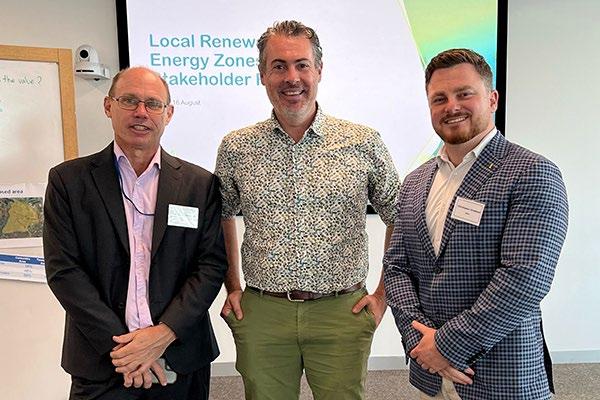
the Work Health and Safety and Other Legislation Amendment Act 2024 continues to enhance the safety of Queensland workplaces.
Understanding recent changes is crucial for maintaining compliance and safeguarding your workforce. to help you navigate these updates effectively, Work Health and Safety Queensland have hosted an informative, pre-recorded webinar discussing the following:
½ Health and Safety Representatives (HSR) powers and function;
½ new employer obligations in informing workers about HSR elections, powers and functions;
½ HSR training and remuneration;
½ provisional improvement notices and cease work notices;
½ entry permit holder powers;
½ changes to the role of inspectors in issue and dispute resolution;
½ changes to suitable entities and relevant unions (worker representatives);
½ changes to the jurisdiction of the Queensland Industrial Relations Commission;
½ regulation information sharing with other jurisdictions.
to view the webinar, visit www.bit.ly/whsolawebinar

NECA Queensland is excited to announce the provision of post-trade training across the state. We will be delivering the Construction Wiring Course AS3000 and the AS3017 testing and Verification Refresher Course at local facilities throughout Queensland. this initiative aims to provide much-needed post-trade training, particularly to regional areas that often miss out on such opportunities.
these courses are designed to ensure that our members stay up-to-date with the latest industry standards and practices. By bringing these training programs closer to where our members are based, we are removing barriers to access and supporting continuous professional development.
For more information, or to book in training in your local area, please contact the NECA QLD team on 1300 361 099.

the Queensland Government has simplified the trust account framework, to better support industry. the trust account framework is intended to protect subcontractors, who are most significantly impacted by late payment, non-payment and insolvency.
Amendments that came into effect on 1 July 2024 are designed to support industry, by reducing complexity and the cost of complying with the framework, while still maintaining important protections.
the key changes to the trust account framework include:
½ simplifying the definition of a ‘subcontractor beneficiary’ of the project trust (making it easier for trustees to understand who must be paid from the trust);
½ simplifying the trust recordkeeping requirements, working with software providers to ensure there are compliant products available and continuing a transitional regulatory approach for the keeping of records until software is readily available;
½ pausing the requirement for independent account reviews, in recognition of the record keeping and software constraints (trustees no longer need to engage an auditor to review retention trusts);
½ removing requirements for mandatory retention trust training (industry has a range of non-mandatory training and resources available);
½ clarifying that trust account balances are not included in minimum financial requirements reporting;
½ clarifying the transitional provisions that apply to new phases of the framework.
NECA will continue to advocate on members’ behalf for stronger security of payment reforms, especially as the final stage of the trust account framework will be rolled out over the coming months and into 2025.

As we approach the Queensland state election, NECA QLD has been pivotal in advocating for the needs of our members. Our meetings with current ministers and candidates have highlighted the urgent need for more resources and funding for industry-led business training programs. this comes at a time when the construction industry has seen record business closures and liquidations, underscoring the necessity for electrical contractors to build stronger business foundations.
In addition to business training, we are pushing for more initiatives to enhance female participation in the electrical industry. this includes industry-led mentoring, support groups, and programs specifically designed to encourage and sustain female engagement in our sector. It’s crucial that we create an inclusive environment, where everyone has the opportunity to thrive.
Other critical areas of focus are mental health support and leadership training. Currently, we are navigating a generational gap between the next generation of apprentices, employers and supervisors. Providing a conducive workplace for the next generation of electricians means addressing mental health challenges head-on and fostering strong leadership within our teams. this holistic approach not only benefits individual contractors but also strengthens the industry as a whole. Industry-led training and development, resources and programs, that foster better communication and healthier workplaces, can help improve the completion rate of electrical apprentices.
Furthermore, we are addressing the availability of Certificate III training and working to reduce the backlog in block training. By ensuring that training is accessible and timely, we can better equip our electrical apprentices with the skills they need to excel in their roles.
the QLD Department of Employment, Small Business and training has announced their Workforce Connect Fund, which supports small businesses with immediate HR solutions, with grants of up to $5000 for eligible businesses. With this, businesses are provided with HR coaching, streamlined workforce solutions and recruitment strategies to assist with workforce attraction, retention and engagement.
Eligibility Criteria:
½ have an active Australian Business Number (ABN);
½ be registered for GS t;
½ demonstrate their principal place of business is in Queensland;
½ have fewer than 20 employees (by headcount);
½ have an annual turnover of less than $10 million;
½ demonstrate that at least 50% of the business’ income is generated directly from the business (i.e. not solely investments or government funding);
½ declare that owners/directors are not insolvent or undischarged bankrupt.
For more information and to apply: https://bit.ly/3WtbzNl



NECA’s Market Monitor biennial survey is the most comprehensive survey of the electrotechnology industry in Australia and has been taking the pulse of the electrical and communications industry for the last decade.
Your participation enables NECA to engage with industry, government and key stakeholders on the issues that matter most to you, identify future trends and build market insights for the benefit of our industry.
As a respondent you will receive a special report, not made publicly available by state and size of business. This includes:
> Industry charging methods
> Call out fees
> Hourly charge-out rates for tradesmen
> Apprentice hourly rates comparison by year
> Key industry trends and business concerns.
All entrants will go into the draw to win:
> 1 x Schneider Electric EVlink Home charging station
> 1 x Clipsal Wiser starter pack
> 4 x $250 Ampol cash gift cards
> 5 x NHP packs including 1 x ISO Extension Socket and 1 x ISO Appliance Inlet
> 20 x CABAC Premium Push Button Digital Dimmers.
The survey closes on 30 November 2024.
HERE


Larry Moore NECA SA/NT Executive Director
OUR INDUS t RY GALA DINNER, HELD ON FRIDAY 30 AUGUS t 2024 At t HE ADELAIDE CONVEN t ION CEN t RE, WAS AN OU t S tANDING SUCCESS, WI t H NEARLY 500 Att ENDEES
ENJOYING AN EVENING FILLED WI t H GREAt EN t ER tAINMEN t, FAN tAS t IC FOOD AND WINE, AND INDUS t RY ACHIEVEMEN t S
We wish to congratulate all winners, commendation recipients, and finalists of the Excellence, Small Business, and Apprentice of the Year Awards and to thank all of those who nominated a project or an apprentice. It is pleasing to once again see the fantastic projects our members are undertaking and the excellent apprentices they are employing.
I would like to sincerely thank everyone who attended the event and showed support for our industry and the association.
We have once again received excellent feedback regarding the event, which is growing in numbers and popularity each year.
the evening began with a welcoming address from Chris Mattner, treasurer of the NECA SA/Nt branch. Once the evening’s formalities had finished, the Baker Boys band had the dance floor full, with a fantastic lineup of new and old songs.
Our sincere thanks to each of our fantastic sponsors, because, quite
simply, this event could not be run without their generous support. Our sponsors, this year, included:
Perpetual Sponsor
Schneider Electric
National Sponsors
Schneider Electric and MMEM
Apprentice Sponsor MEGt
Gold Sponsors
Cbus Super, Electro Careers & Apprenticeships (Electro CA), and MAS National
Product Sponsors
Bianco
Milwaukee tools
Silver Sponsors
Clevertronics and Portable
Long Service Leave
Award Sponsors
Bianco, Energy Skills Australia, and PEER
Bronze Sponsor
Lynch Meyer Lawyers


the Excellence Awards provide an opportunity for electrical and communications contractors to showcase the high-quality work they perform daily. the Small Business Awards recognise our members who are making an impact in the industry and deserve to be acknowledged at the highest level. the Apprentice Awards commends the top apprentices in our industry, based on their technical abilities, general knowledge, attitude, passion, and desire to succeed in their career.
the full write-up on this year’s NECA SA/Nt Excellence, Small Business, and Apprentice Awards will be featured in the December edition of the NECA NEWS magazine.
If you have a project, small business, or apprentice that you are proud of, we encourage you to seriously consider entering the 2025 NECA SA/Nt Excellence, Small Business, and Apprentice Awards – where the rewards are significant! If you have a project, small business, or apprentice in mind, it would be very beneficial to start thinking about your submission now. For the third year running, we are pleased to say that we will again be offering the FREE submission writing service, which will be available to all members! If you would like further information on entering a project, small business, or apprentice into the awards, please contact the NECA SA/Nt office and speak to Jamie Phillips, Marketing, Communications and Membership Manager.
the NECA SA/Nt website has undergone a major makeover and is now live! the new website has all of the same features as the old site, plus brand-new business-related resources for you to use, all while being easier to navigate, and having improved site speed. What’s more, membership registrations and renewals can now be completed online too! Please note that your login details from our old website will carry over into the new site (i.e. are the same).
Visit necasa.asn.au or scan the QR code to check out the new website!
On Saturday 24 August 2024, I travelled to Darwin to attend the Master Builders Northern territory Excellence in Building and Construction Awards, the construction industry’s largest event in Northern Australia, of which we were a proud Silver Sponsor, at the picturesque Mindil Beach Casino.
It was an excellent event, with over 700 attendees, and the perfect setting to catch up with several of our Darwinbased members. It was pleasing to hear that they are all extremely busy
with work, notwithstanding the current problems faced by the industry, such as the continuance of inflationary pressure and the recent introduction of the Electrical Safety Act 2022.
While in Darwin, I used the opportunity to meet with the Senior Electrical Licensing Officer from the Department of Industry, tourism and trade to discuss the effects of the new legislation on the electrical contracting industry and the operation of the newly formed Electrical Safety Board.
Jamie Phillips, Marketing, Communications & Membership Manager, will be travelling to Darwin in October to participate in a locally run trade show, on thursday 10 October at Darwin Greyhounds in Winnellie, alongside some of our fantastic partners, including Clipsal, Energetic Lighting, Milwaukee tools, and NHP. We recommend Nt members pencil this date into your calendars now, and keep an eye on our fortnightly eNews and social media channels for more information.
After the roaring success that was last year’s Specialist Contractors Association Business Luncheon, we have recently locked away the date and venue for this year’s event. this year’s luncheon will centre around the theme ‘Industrial Relations in Focus: Unveiling the Challenges of Closing the Loopholes legislation,’ and will be held on Friday 8 November at the National Wine Centre. this event will be a fantastic opportunity to hear from Senator the Honourable Simon Birmingham, Leader of the Opposition in the Senate, listen to an intellectual Q&A with an expert panel, and network with your peers. this event is not one to be missed so we highly recommend you pencil this date into your calendars now and keep an eye on our fortnightly eNews and social media channels for further information.
For further information or assistance with any of the above, please contact the NECA SA/Nt team on (08) 8272 2966.
NECA CAREERS & APPRENtICESHIPS (NCA) WAS EStABLISHED IN 2017 BY NECA SA/N t. AF t ER SEVEN YEARS OF SUCCESSFUL OPERAt IONS, I t WAS t HE PERFEC t t IME FOR A BRAND REFRESH - IN t RODUCING ELEC t RO CAREERS & APPRENtICESHIPS (ELEC t RO CA).
In addition to giving our very successful group training organisation (GtO) a much-needed branding makeover, the justification behind the name change is very simple - we wanted to ensure that the GtO is identified as a holistic organisation that is seen to encompass the industry as a whole, and not be restricted to any specific cohort of contractors.
Put simply, it is imperative to us that our GtO is recognised as a provider of quality apprentices in all vocations covered by the electrotechnology industries, and available to all contractors.
Importantly, this branding refresh and change of name will not alter any
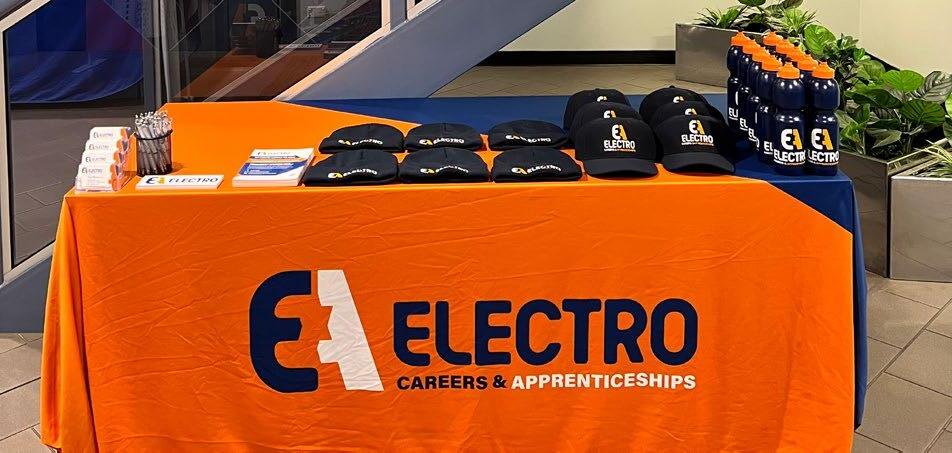
current arrangements with our NECA SA/Nt and RACCA SA members receiving subsidised charge-out rates on their apprentices. Additionally, there will be no changes to personnel - the Electro CA team will continue to focus on delivering quality apprentices, and ultimately tradespeople, for our sectors.
to celebrate this brand refresh and a new chapter for our GtO, we held a rebrand launch event on Wednesday 14 August 2024 at the Electro CA and NECA SA/Nt offices. It was an excellent opportunity for the NECA SA/Nt and Electro CA teams and management committees to come together alongside our dedicated host employers and industry representatives over some fantastic wine and delicious

Vietnamese catering to celebrate the success of the GtO to date. Electro CA currently employs over 160 apprentices and counting – here’s to continued growth over the next seven years!
to check out our new branding and the Electro CA website, visit electroca.com.au or scan this QR code.
If you are interested in hiring an apprentice, or want to learn more about why hiring an apprentice through Electro CA is the best decision for your business, please contact the Electro CA team on (08) 8272 0799.
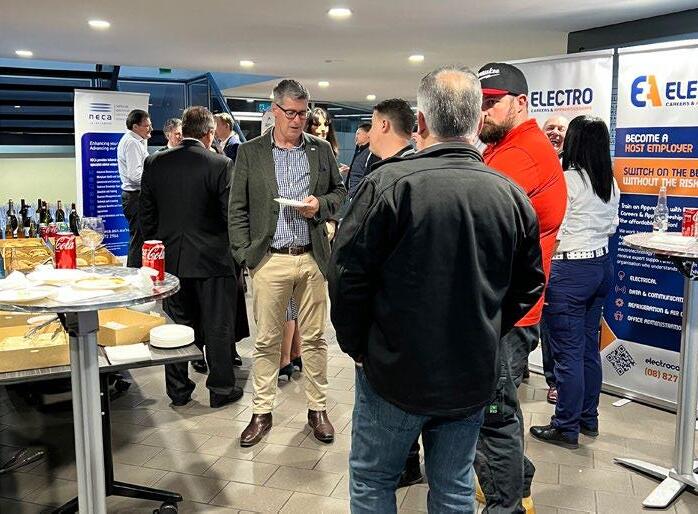

Larry Moore Executive Director
Larry manages the affairs of the association and is responsible for all business operations, including the management of the association’s assets and employees. He manages the overall direction of the NECA SA/Nt branch, as well as collaborating with other NECA state branches on national issues. Larry sits on a number of industry and government boards, at both the state and national level, where his input is critical to protecting the interests of NECA SA/Nt members and the electrotechnology industry. Outside of work, Larry has a passion for sports. He is an avid supporter of Port Power (the real Magpies) and a long-term supporter and member of Manchester United (real football). He can often be found watching the games with a cold beer (or a glass of red) in hand.

Dain provides members with information, assistance and representation on Workplace Relations and Employee Management issues including: award interpretation; payroll and tax; apprenticeship matters; creating workplace policies, flexible working arrangements, and employee contracts; employee termination and redundancy; Enterprise Bargaining Agreement (EBA) development, negotiation, and certification; industrial relations matters, including unfair dismissal and underpayment claims; employment dispute resolution; legal and contractual issues; and business management. Dain has completed a Bachelor of Laws and a Bachelor of Arts. When Dain isn’t working, he enjoys getting active, by playing indoor cricket and mixed basketball, as well as teaching in Sunday school.

Jasmin Valera Finance Officer
Jasmin’s role involves managing membership accounts, invoicing, accounts payable and receivable, the BP Fuel System, stationery orders and the finances for RACCA SA and the Specialist Contractors Association. If you have contacted the office, you will no doubt have spoken with Jasmin, who is always there to assist with general enquiries and manage any finance issues. Jasmin has completed a Bachelor of Business in Accounting. Outside of work, you’ll find Jasmin spending time with her husband and their toddler, taking a drive, hiking, and visiting wineries and beaches.
the NECA SA/Nt team is here to assist you and your business in any way that we can! We thought it was time that we put a face to each member of the NECA SA/Nt team, particularly those who you may have communicated with via email or phone but haven’t actually met in person.
Jamie Phillips Marketing, Communications and Membership Manager

Jamie is the first port of call for potential and new members. She manages the NECA SA/Nt member resources, including the website, magazine, eNews/eAlerts, tKB, and the HSEQ portal, in addition to maintaining relationships with sponsors, partners, and industry representatives. Jamie organises member events and initiatives, including the annual Roadshow Seminars, the Industry Gala Dinner, and various other workshops and webinars. Jamie also provides members with business management and marketing advice and assistance. Jamie also undertakes the marketing and events for RACCA SA, the Specialist Contractors Association, and our GtO, Electro Careers & Apprenticeships (Electro CA). Jamie has completed a Bachelor of Medical Science and a Master of Business Administration (Marketing). You will often find Jamie spending time with her family and friends, going to the gym, cooking up a storm, by the beach, or at a nice SA winery.

Ben provides members with information and assistance on workplace health, safety, environment, and quality matters, including: training, safe work method statements, risk assessments, audits, safety systems, accreditation, toolbox talks, incident investigations, and site inspections. Ben enjoys making the most of his life outside of work with his wife and children. You’ll often find Ben having a BBQ, a glass of wine with mates, playing golf and just generally enjoying life.
Maica Cortez Executive Assistant

Maica provides invaluable assistance to the Executive Director as well as undertaking various administrative tasks, including event administration for the Roadshows and Industry Gala Dinner, database management, office administration, meeting minutes, member access to the website, HSEQ Management System, and tKB. Maica’s role is essential to the smooth running of the office. Maica has completed a Bachelor of Business Management, as well as previous studies in Accounting and Nursing. Outside of the office, you will find Maica shopping, taking photos, seeing friends, and enjoying a road trip.


WE
RECEN
AUSSIE
Peter Lamont
Director ACRS and Senior Policy Advisor peter.lamont@neca.asn.au
OLYMPIC
I
HAS
At any time of the day or night, anywhere you are, you can now watch live action, dial up a replay of any event, check a result, or get informed commentary instantly on your mobile phone. Long gone are the days when you watched whatever the live feed was on your t V, and if it wasn’t what you wanted to watch then you missed out. Now, it’s instant information, as chosen by you.
We are such a critical industry to our society’s need for instant data and information – so hats off to everyone involved!
From an ACRS point of view, we continue to provide a robust and rigorous registration service to data and telecommunications cablers. ACRS meets our industry regulator, the Australian Communications and Media Authority (ACMA), regularly, as well as participating on various cabler expert panels. ACRS continues to work with ACMA to ensure that cablers are kept informed on all changes to cabler provider rules.
One of the interesting things happening at present is ACMA establishing a Consumer Consultative Forum (CCF) to engage with stakeholders on issues that affect people who use mobiles, the internet, and fixed-line phones. t his is a positive step, and one that
has worked well with electrical distribution authorities, who have used consultative councils to discuss consumer needs for some years now.
Also, Safe Work Australia is in the process of releasing new guidelines for all industries that need do any work involving silica products, including where you need to drill holes in silica kitchen or bathroom benches. t his guide will be released soon and ACRS will ensure we circulate its contents widely.
Finally, the Queensland Government has new Electrical Safety regulations in place that will include mandatory requirements to turn the power off before undertaking any work in ceiling spaces from January 1, 2025. t his new regulation will be mandatory for all industries, including for data and telecommunications work. t here have been too many fatalities from working in ceiling spaces and this will help to improve safety. t hrough NECA, we are advising the Queensland Government to ensure there is a robust and extensive education and information campaign that goes with this new requirement. I am sure that other states are also keeping a close eye on this to decide whether to follow suit.
t HE AUS t RALIAN COMMUNICAt IONS AND MEDIA
AU t HORI t Y (ACMA) HAS RELEASED I t S 2024–25 COMPLIANCE PRIORI t IES, WHICH INCLUDE A S t RONG FOCUS ON CONSUMER PROt EC t IONS IN t HE t ELCO SEC tOR.
Thinking about a move into data and communications as a way to diversify your contracting business? Here are a few critical questions to ask before you get started.
Thinking about a move into data and communications as a way to diversify your contracting business? Here are a few critical questions to ask before you get started.
Am I registered to do the work?
Am I registered to do the work?
In particular, ACMA will prioritise work with telcos on scam prevention, with a focus on disrupting scam networks that impersonate messages from legitimate businesses and services.
In Australia, all cabling work, including telephone, data, fire and security alarm system cabling, that connects with the telecommunications network must be performed by a registered cabler, or under the direct supervision of a registered cabler.
In Australia, all cabling work, including telephone, data, fire and security alarm system cabling, that connects with the telecommunications network must be performed by a registered cabler, or under the direct supervision of a registered cabler.

Registration and 360 hours for Open Registration. Holding an electrical licence, Security licence or enAbleTM NBN Card will suffice.
Registration and 360 hours for Open Registration. Holding an electrical licence, Security licence or enAbleTM NBN Card will suffice.
cabling work without being registered?
Once I’ve completed the training, who do I register with?
Once I’ve completed the training, who do I register with?
½ supporting telco customers experiencing domestic and family violence, by monitoring how telcos are assisting these customers to stay safe and stay connected;
– the National Self-Exclusion Register – and monitoring industry compliance with the ban on the use of credit for online betting;
Focus will also be given to ensuring telcos provide prompt connections to triple zero emergency calls, and that they are actively implementing the new Financial Hardship Standard, which assists people struggling to pay their internet and phone bills.
There are a number of Cabling Registrars authorised by the Australian Communications and Media Authority (ACMA) in Australia, including ACRS, that can verify a cabler’s eligibility for registration.
There are a number of Cabling Registrars authorised by the Australian Communications and Media Authority (ACMA) in Australia, including ACRS, that can verify a cabler’s eligibility for registration.
½ combating misinformation and disinformation on online platforms, by overseeing digital platforms’ efforts under the voluntary code;
What is required to become a registered cabler?
What is required to become a registered cabler?
t he full list of the 2024–25 ACMA annual compliance priorities is:
To become a registered cabler you must complete the appropriate training course for the work to be undertaken through a Registered Training Organisations (RTO).
To become a registered cabler you must complete the appropriate training course for the work to be undertaken through a Registered Training Organisations (RTO).
An Open Registration is required for commercial and domestic premises work. For work in domestic premises you only require a Restricted Registration.
An Open Registration is required for commercial and domestic premises work. For work in domestic premises you only require a Restricted Registration.
½ protecting telco customers experiencing financial hardship, by monitoring industry compliance with the Financial Hardship Standard, including how financial hardship arrangements are being managed;
You must also have a minimum of 80 hours cabling experience for Restricted
You must also have a minimum of 80 hours cabling experience for Restricted
½ safeguarding triple Zero emergency call services, through carrier compliance with their obligation to ensure that calls are successfully connected to emergency services;
The ACMA has a range of options available to enforce compliance. These include: formal warnings; non-compliance notices to the telecommunications carrier, which may result in disconnection from the network; telecommunications infringement notices (on-the-spot fine of $2,040); and if the matter is serious enough, taking court action, which may result in a conviction and/or a fine of up to $20,400.
The ACMA has a range of options available to enforce compliance. These include: formal warnings; non-compliance notices to the telecommunications carrier, which may result in disconnection from the network; telecommunications infringement notices (on-the-spot fine of $2,040); and if the matter is serious enough, taking court action, which may result in a conviction and/or a fine of up to $20,400.
Do all my staff need to be registered?
Do all my staff need to be registered?
½ tackling the online supply of dodgy devices, by working with advertisers, retailers, and consumers, to stop non-compliant electronic equipment coming into Australia;
No. To ensure compliance with the ACMA guidelines, cablers must be either registered or, directly supervised at all times by a cabler who is registered for the type of work being done.
No. To ensure compliance with the ACMA guidelines, cablers must be either registered or, directly supervised at all times by a cabler who is registered for the type of work being done.
½ continuing our focus on interactive gambling safeguards, by: taking action against illegal offshore wagering providers, promoting consumer awareness of BetStop
½ disrupting SMS impersonation scams, by enforcing telco obligations to trace, block and report scam messages, and by continuing the development of the SMS sender ID register;
The biggest consequence is that, should anything go wrong or your work is found to be faulty, your business insurance is unlikely to cover you. This could lead to litigation and substantial financial loss for your business.
The biggest consequence is that, should anything go wrong or your work is found to be faulty, your business insurance is unlikely to cover you. This could lead to litigation and substantial financial loss for your business.


½ targeting misleading spam messages, by enforcing spam rules to stop commercial messages being misleadingly sent as service or non-commercial messages.
Not being registered is not worth the risk.
Not being registered is not worth the risk.
Peter Lamont Director, ACRS www.acrs.com.au
Peter Lamont Director, ACRS www.acrs.com.au

Cabling Registration run by the industry, for the industry
Registration run by the industry, for the industry
The Australian Cabler Registration Service (ACRS) provides a fast, reliable and low-cost registration service for the electrical and communications industry.
The Australian Cabler Registration Service (ACRS) provides a fast, reliable and low-cost registration service for the electrical and communications industry.
The Australian Cabler Registration Service (ACRS) provides a fast, reliable and low-cost registration service for the electrical and communications industry.
The Australian Cabler Registration Service (ACRS) provides a fast, reliable and low-cost registration service for the electrical and communications industry.
The Australian Cabler Registration Service (ACRS) provides a fast, reliable and low-cost registration service for the electrical and communications industry.
The Australian Cabler Registration Service (ACRS) provides a fast, reliable and low-cost registration service for the electrical and communications industry.
Peace of mind costs less than 60c a week! Register with ACRS and reap the benefits of being with the only Australian electrical specialist registry while avoiding a hefty fine.
Peace of mind costs less than 60c a week! Register with ACRS and reap the benefits of being with the only Australian electrical specialist registry while avoiding a hefty fine.
Peace of mind costs less than 60c a week! Register with ACRS and reap the benefits of being with the only Australian electrical specialist registry while avoiding a hefty fine.
Peace of mind costs less than 60c a week! Register with ACRS and reap the benefits of being with the only Australian electrical specialist registry while avoiding a hefty fine.
Peace of mind costs less than 60c a week! Register with ACRS and reap the benefits of being with the only Australian electrical specialist registry while avoiding a hefty fine.
Peace of mind costs less than 60c a week! Register with ACRS and reap the benefits of being with the only Australian electrical specialist registry while avoiding a hefty fine.
It is illegal for anyone other than a registered cabler to install or maintain cabling that connects to the telecommunications network. So if you are installing any equipment that will connect to the network – from smart home systems to extra phone lines –you need a current cabling registration.
It is illegal for anyone other than a registered cabler to install or maintain cabling that connects to the telecommunications network. So if you are installing any equipment that will connect to the network – from smart home systems to extra phone lines –you need a current cabling registration.
Peace of mind costs less than 60c a week! Register with ACRS and reap the benefits of being with the only Australian electrical specialist registry while avoiding a hefty fine.
Peace of mind costs less than 60c a week! Register with ACRS and reap the benefits of being with the only Australian electrical specialist registry while avoiding a hefty fine.
It is illegal for anyone other than a registered cabler to install or maintain cabling that connects to the telecommunications network. So if you are installing any equipment that will connect to the network – from smart home systems to extra phone lines – you need a current cabling registration.
It is illegal for anyone other than a registered cabler to install or maintain cabling that connects to the telecommunications network. So if you are installing any equipment that will connect to the network – from smart home systems to extra phone lines – you need a current cabling registration.
It is illegal for anyone other than a registered cabler to install or maintain cabling that connects to the telecommunications network. So if you are installing any equipment that will connect to the network – from smart home systems to extra phone lines – you need a current cabling registration.
It is illegal for anyone other than a registered cabler to install or maintain cabling that connects to the telecommunications network. So if you are installing any equipment that will connect to the network – from smart home systems to extra phone lines – you need a current cabling registration.
Carrying a current cabling registration card confirms you have completed the relevant training and gained the professional experience to complete the work to the customer’s expectations.
Carrying a current cabling registration card confirms you have completed the relevant training and gained the professional experience to complete the work to the customer’s expectations.
It is illegal for anyone other than a registered cabler to install or maintain cabling that connects to the telecommunications network. So if you are installing any equipment that will connect to the network – from smart home systems to extra phone lines – you need a current cabling registration.
It is illegal for anyone other than a registered cabler to install or maintain cabling that connects to the telecommunications network. So if you are installing any equipment that will connect to the network – from smart home systems to extra phone lines – you need a current cabling registration.
For more information visit www.acrs.com.au or call 1300 667 771.
For more information visit www.acrs.com.au or call 1300 667 771.
Carrying a current cabling registration card confirms you have completed the relevant training and gained the professional experience to complete the work to the customer’s expectations.
Carrying a current cabling registration card confirms you have completed the relevant training and gained the professional experience to complete the work to the customer’s expectations.
Carrying a current cabling registration card confirms you have completed the relevant training and gained the professional experience to complete the work to the customer’s expectations.
Carrying a current cabling registration card confirms you have completed the relevant training and gained the professional experience to complete the work to the customer’s expectations.
Carrying a current cabling registration card confirms you have completed the relevant training and gained the professional experience to complete the work to the customer’s expectations.
Carrying a current cabling registration card confirms you have completed the relevant training and gained the professional experience to complete the work to the customer’s expectations.

BY MEMBERS,
Under the National Electricity Rules (NER) the AER are required to develop guidelines for the “accounting and functional separation of the provision of direct control services by DNSPs from the provision of other (contestable) services by DNSPs3”
the Ring-fencing guideline has the stated objectives of:
½ promoting the National Electricity Objective (NEO) by providing for the accounting and functional separation of the provision of direct control services by DNSPs from the provision of other services by them, or by their affiliated entities;
½ promoting competition in the provision of electricity services.
the Guideline imposes obligations on DNSPs targeted at, among other things:
½ cross-subsidisation, with provisions that aim to prevent a DNSP from providing other services that could be cross-subsidised by its distribution services;
½ discrimination, with provisions that aim to
½ prevent a DNSP conferring a competitive advantage on its related electricity service providers;
½ ensure a DNSP handles ring-fenced information appropriately.
to this end the Ring-fencing guideline purports to impose obligations on the DNSPs to:
½ establish and maintain separate accounts and supporting processes to demonstrate the extent and nature of transactions between the DNSP and its affiliated entities;
½ comply with the cost allocation principles and AER-approved cost allocation method;
½ not discriminate (directly or indirectly) between their Related Electricity Service Provider (RESP) and a competitor;
½ maintain separate offices to their RESP providing contestable electricity services;
½ ensure staff involved in marketing or delivering regulated DNSP activity are not also marketing or delivering contestable electricity service for the RESP (more on this below);
½ maintain and publish (quarterly) a register of offices and staff that have been shared in the previous three months due to allowable provisions within the Ring-fencing guideline itself.
All of this appears to be appropriate and robust, until we examine the ‘fine print’ and evidence of its application.
the requirements to maintain separation of office space is immediately undermined (in the same clauses) by pre-endorsed reasons that DNSPs can nominate to effectively negate the primary principal.
the mandatory quarterly self-reporting mechanisms that are meant to provide some transparency and accountability for sharing of staff and facilities between the DNSPs and respective RESPs are effectively a meaningless ‘tick-a-box’ exercise.
the question then turns to monitoring and enforcement of the obligations. the Guideline itself requires that:
½ the DNSP establishes and maintains appropriate internal procedures to ensure it complies;
½ the DNSP must notify the AER in writing within 15 business days of becoming aware of a breach of its obligations under the Guideline.
With respect to investigations, the Guideline indicates that the AER itself may “require a DNSP to provide a written response to a complaint or concern the AER raises.”
With respect to enforcement, the AER “may seek enforcement of this Guideline by a court in the event of any breach of this Guideline by a DNSP, in accordance with the NEL (National Electricity Law).”
In summary, the construction of the Ring-fencing guideline is such that it:
½ undermines the objectives of the National Electricity Rules;
½ enables misuse of DNSP resources to compete in, and cross subsidise, unregulated activities, to the detriment of others operating in competitive markets;
½ avoids public scrutiny of the DNSPs (and RESPs) with respect to the use of DNSP resources in unregulated activities;
½ allows the DNSPs to claim compliance with the guideline by effectively declaring the ‘sharing’ of (unlimited) resources is justified by a preordained waiver (see below).
this aspect of the guideline is the most illustrative in terms of the disfunction of the Guideline itself, the inadequacy of the reporting obligations, and the AER as a regulator.
From the Ring-fencing guideline:
4.2.2 Staff sharing
(a) Subject to this clause 4.2.2, a DNSP must ensure that its staff involved in the provision or marketing of direct control services are not also involved in the provision or marketing of contestable electricity services by a related electricity service provider.
(b) Clause 4.2.2(a) does not apply in respect of: i. a member of staff who, in the course of their duties:
½ does not have access to electricity information;
½ has access to electricity information but does not have, in performing the roles, functions or duties of their staff position, any opportunity to use that electricity information to engage in conduct that is contrary to the DNSPs obligations under clause 4.1; or
½ only has access to electricity information to the extent necessary to perform services that are not electricity services. …
ii. providing assistance to the extent necessary to respond to an event that is beyond a Network Service Provider’s reasonable control;
iii. staff located at a regional office, …

A DNSP only has to nominate that that their engineering, technical, or trade staff are unable to utilise their knowledge of DNSP electrical information to “engage in conduct” that discriminates against competitors in their normal role.
In NECA’s opinion, such a justification is secondary to the fact that the DNSP is then able to resource the RESP with unlimited staff, that are employed by the regulated business, but then embedded in the RESP business activities.
When you then obtain the quarterly staff sharing register for the various DNSPs you can observe declarations of:
½ large numbers of technical staff shared to the RESPs; and/or
½ entire categories of technical staff simply ‘permanently shared’ with no detail as to hours worked, or projects worked on.
these reports, in conjunction with clause 4.2.2(b), are effectively an enabler for the DNSPs to engage in, and cross subsidise, any external business activity, including competing with businesses providing other electrical services, via their RESP.
Extend similar such justifications for sharing of resources to office space, plant and equipment, the ability to ‘park’ or redeploy DSNP resources back into the DNSP when the RESP activities reduce, and the lack of transparency with respect to timesheets and other accounting and we have a situation where the AER is enabling DNSPs to build up businesses that are:
½ underwritten by the DNSPs themselves (to the detriment of the consumer);

Neil Roberts Director: Policy, Technical and Safety
½ damaging to small and large businesses engaging in legitimate activity (for example – there are examples of RESPs tendering for commercial renewable and EV charging installations using DNSP staff).
NECA has approached the AER and state government ministers and has now formally corresponded with federal government cabinet ministers to highlight the problem and seek remedies.
to date, the AER appears to believe that the Ring-fencing guidelines are appropriate and the DNSPs are complying.
NECA continues to seek and obtain information that informs the issue and case for change; however, we have been frustrated by the lack of transparency supported by the Guideline itself. Specific examples are notified by members from time to time, however our experience so far is that without ‘smoking gun’ evidence of non-compliance with the Ring-fencing guideline itself, the AER won’t engage.
NECA is advocating for changes to the Ring-fencing guideline itself, to reinforce the requirements to separate the resources and activities of a DNSP from their RESPs, and require much greater transparency to the community of the deployment of DNSP resources into unregulated businesses.
If you have any examples that you believe are relevant to this issue, please get in contact with NECA on 1300 361 099.

REMEMBERING t HE ANARCHIC AN t HEMS OF MY YOU t H – PINK FLOYD’S ‘ANOt HER BRICK IN t HE WALL,’ FOLLOWED BY t WIS t ED SIS t ER’S ‘WE’RE NOt GONNA tAKE I t ’ – REMINDED ME OF HOW FAR WE GO IN OUR CAREERS IN t HE ENERGY SEC tOR. YE t IN SOME SWEE t IRONY, OUR WORLD IS FILLED WI t H MORE EDUCAt ION, RULES, GUIDELINES, PRINCIPLES AND LEGISLAt ION t HAN I EVER DREAMED I’D BE PAR t OF. AND WE WOULDN’ t HAVE I t ANY Ot HER WAY.
Having spent many days over the past couple of months with the leaders of industry, fleshing out strategic goals and the measures of success, pressing the collective minds on which direction training and education in our industry should take, it was sobering to be reminded of the ‘why’s’ that lead us to 2024. Whether the AS/NZS 3000, the Essential Performance Capabilities, or the demands of an energy future where clean generation drives market behaviours, the training system we have is built upon the work of so many who set the foundation for a safe, well-educated and ultimately productive workforce.
the principles of competency development in the Vocational Education and training sector are based on building the skills and knowledge of our learners to a point where the industry accepts that person as being competent. Sounds simple, but in a licensed environment, we see the need to promote more than one stop on the journey of lifelong learning. today, the VEt sector is more
about providing the opportunity for professional development, not just the job, but, a career, where many jobs are dotted along your journey.
As technologies emerge, and then become mainstream, the role of the technician will be underpinned by the formal training we find in the tAFEs and Industry RtOs, but also enhanced through the focused training provided by industry OEMs, completing a picture where the
home or business owner can have full confidence in the work being carried out.
For our students leaving school, the career changers who wish to become part of the New Power Generation, and those valuable workers transitioning from fossil fuel industries, the reality is less Pink Floyd and twisted Sister, but more Van Halen. You might as well ‘Jump’ into training – it’s the key to your career future.
P.S. Want to know more about the New Power Generation? Head to Powering Skills Organisation’s website, www.poweringskills.com.au, and download our 2024 Workforce Plan, unashamedly titled, the New Power Generation. From the demand for workers across six critical sectors, to where the heavy lifting from industry needs to be to meet our clean energy goals, our brilliant team at PSO have dived deep into the data to paint a picture of where we are, but more importantly, where we need to be to meet Net Zero in 2050.

Steve Hall GM Projects - Powering Skills Organisation Ltd


Pre-production models shown. Final range and specifications may differ from those depicted.
An unbreakable connection since 1968
Looking for a reliable vehicle to upgrade your business fleet? The Toyota HiLux is the ultimate workhorse, built to handle even the toughest jobs with ease, with advanced safety features, comfortable cabin and customisable options to consider.
Equip your HiLux for work and play with our exclusive range of Toyota Genuine Accessories*. Custom designed to enhance, protect and maintain your HiLux's performance, quality and reliability.
Your Association membership unlocks Toyota Fleet discounts across a great range of Toyota vehicles to help you find the right car for your lifestyle.
To find out more, visit your local Toyota Dealer or go to toyota.com.au/fleet
*See your Dealer for Toyota Genuine Accessory suitability and fitment, & Owners’ Manual

Scan to sign up for the latest insights from Toyota for Business

The Hager invicta panelboard range is designed to suit large home, light commercial or retail applications and is the benchmark for multi-usage panelboards.
The invicta range comes fitted with 2 x 8 Poles of DIN space, split neutral and earth links for easy cabling, a reversible door, and the option for an MCB incomer link kit. hager.com/au

